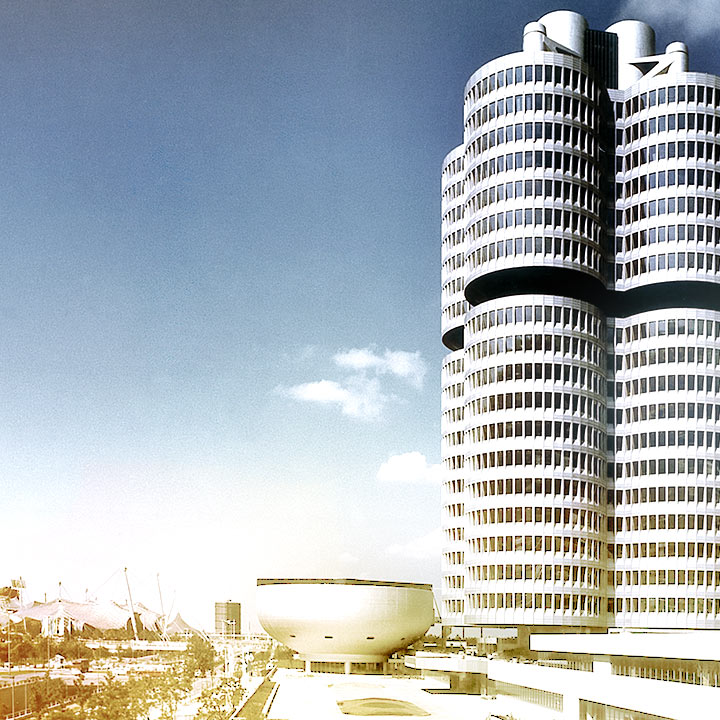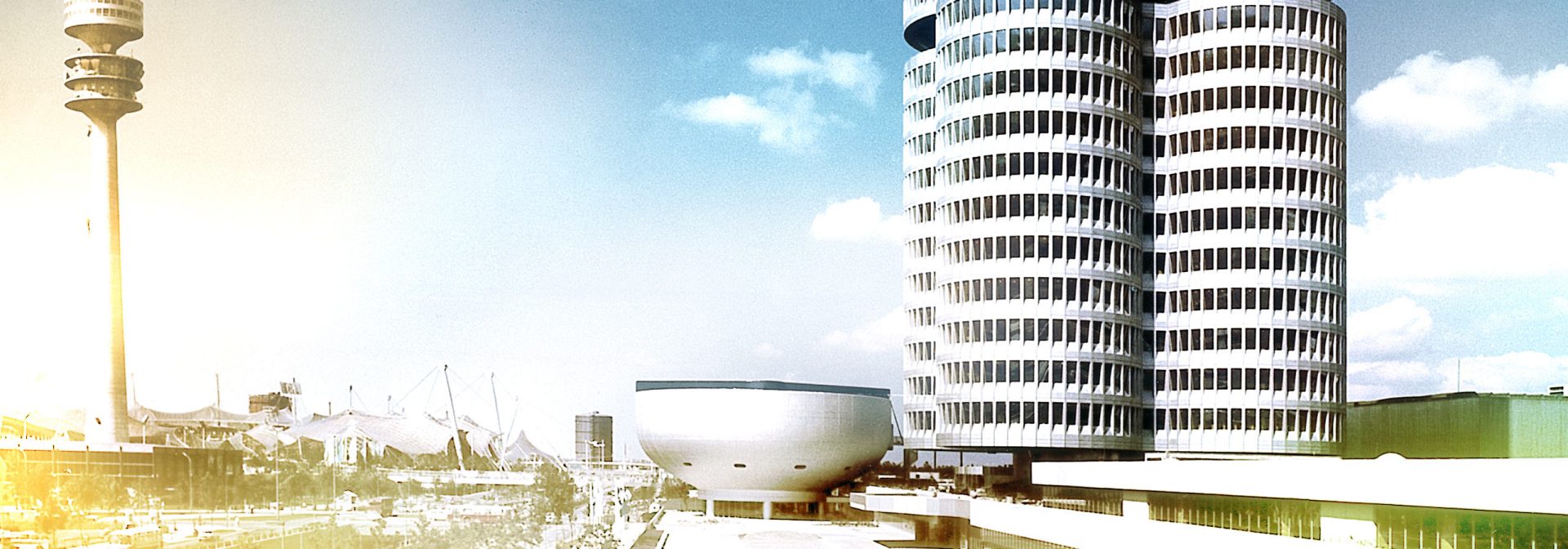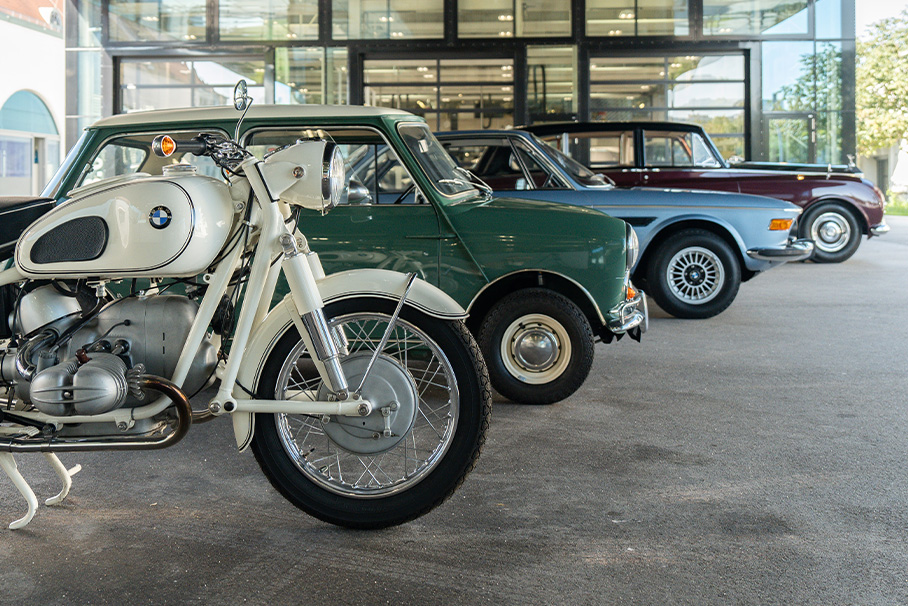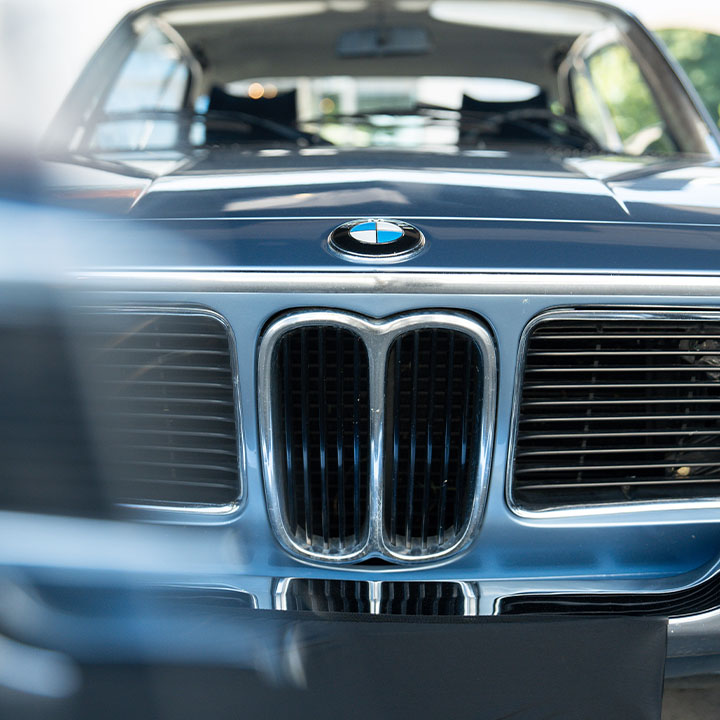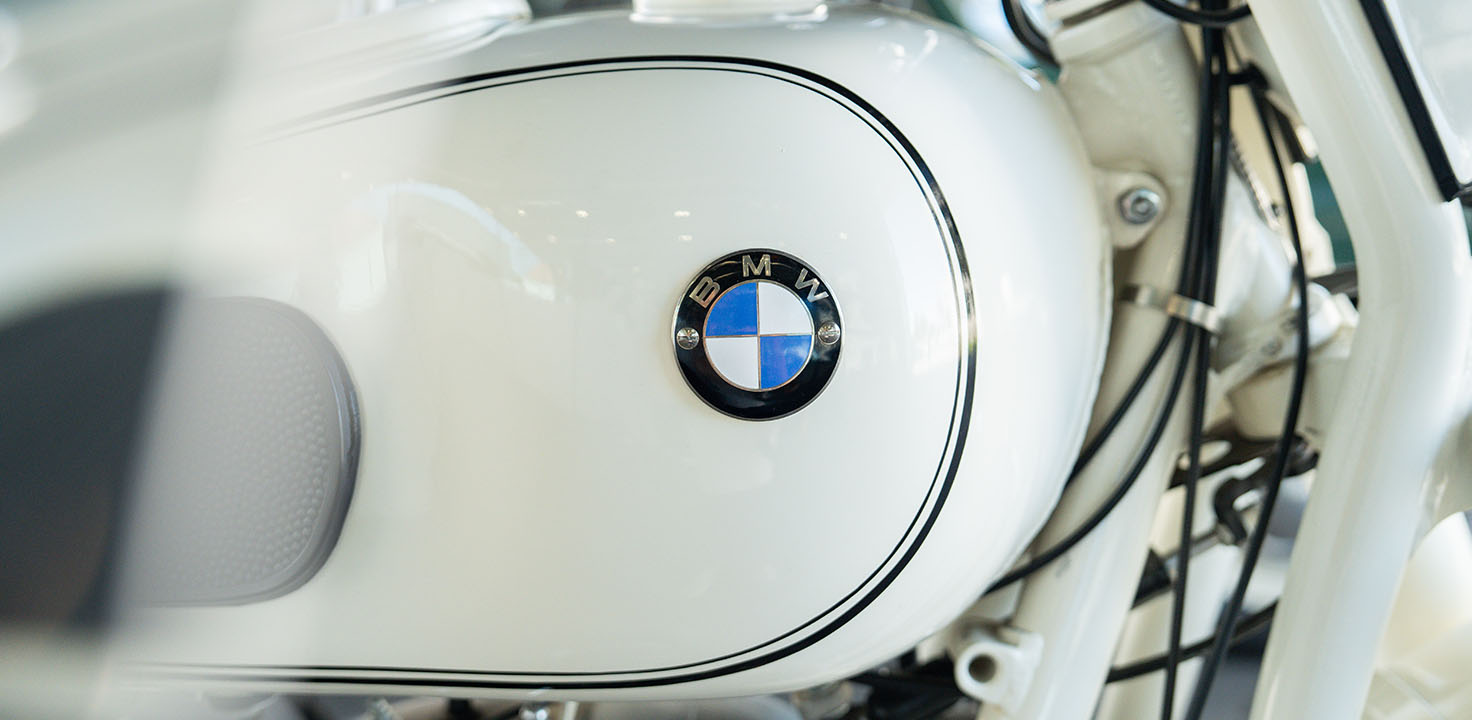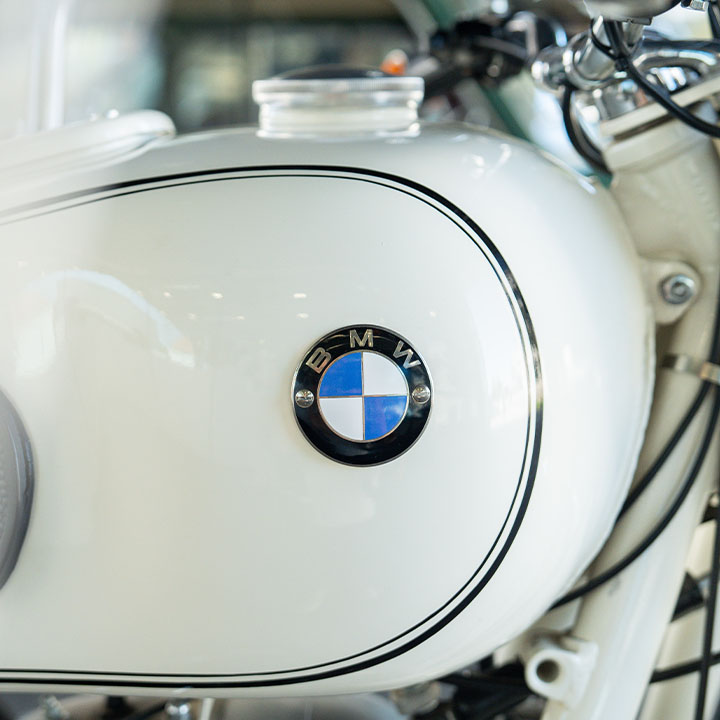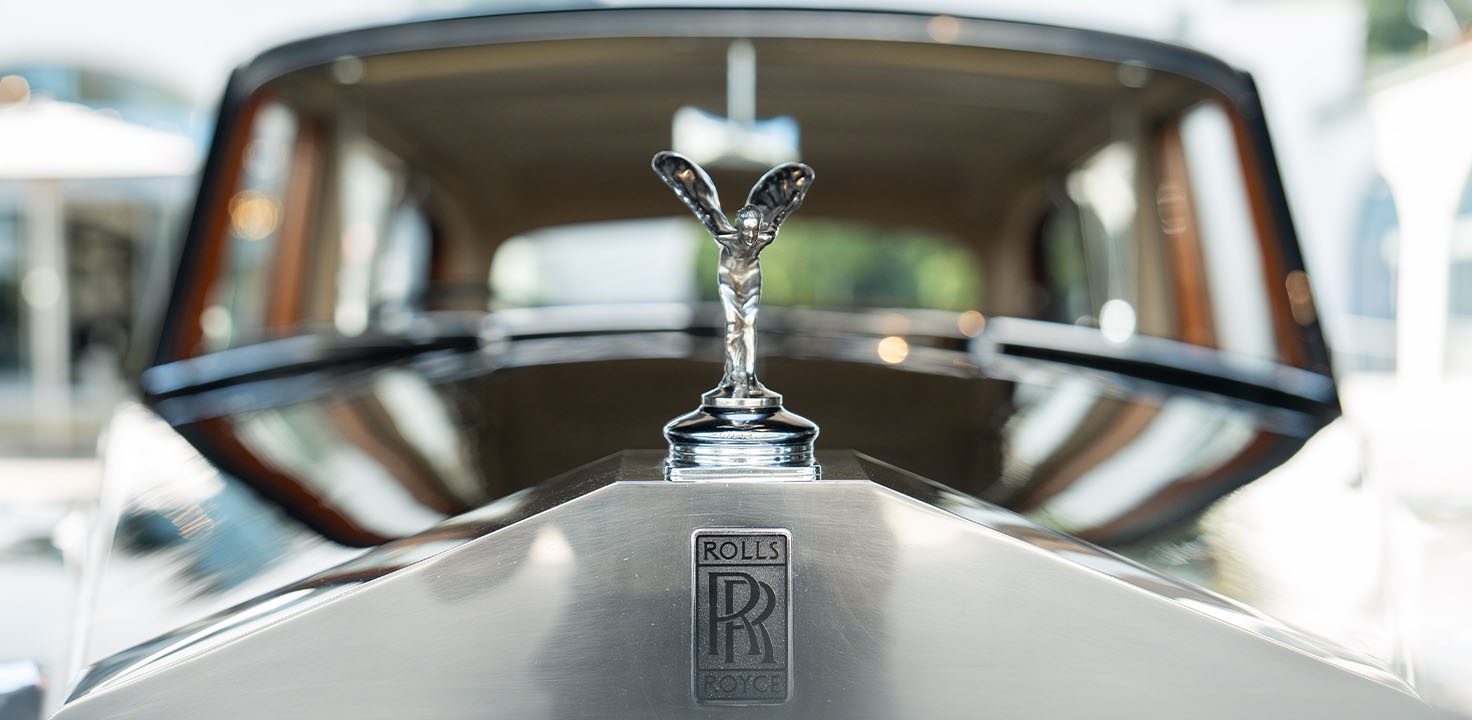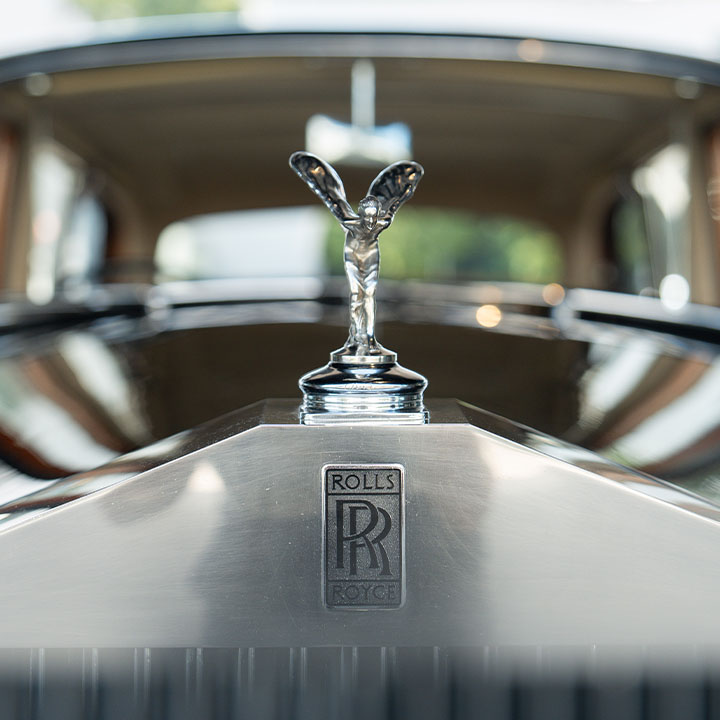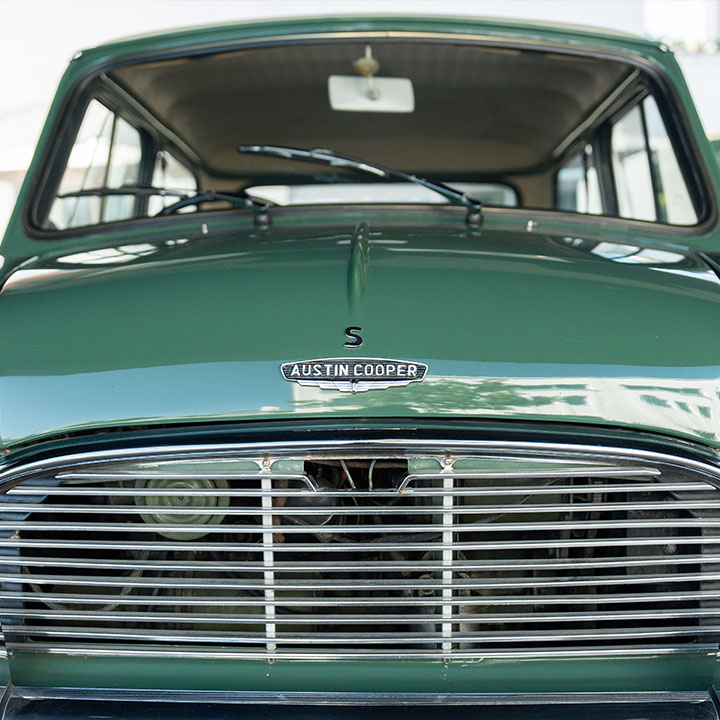With its brands BMW, BMW Motorrad, MINI, and Rolls-Royce, the BMW Group stands for innovative mobility and is one of the world's most successful premium manufacturers of automobiles and motorcycles. The BMW Group sets standards and actively shapes the future of mobility, from design to production. The fascination for the iconic brands has grown steadily over the decades of the company's history and makes the BMW Group unique in its significance.
BMW.
The history of BMW began in 1916 with the production of aircraft engines, a symbol of innovation and pioneering spirit. After 1945, the company made a bold move into motorcycles and cars. The BMW 328 from 1936 is not only a design milestone. It also embodies the passion that BMW still radiates today. The BMW i Series sets new standards for the future and innovative mobility.
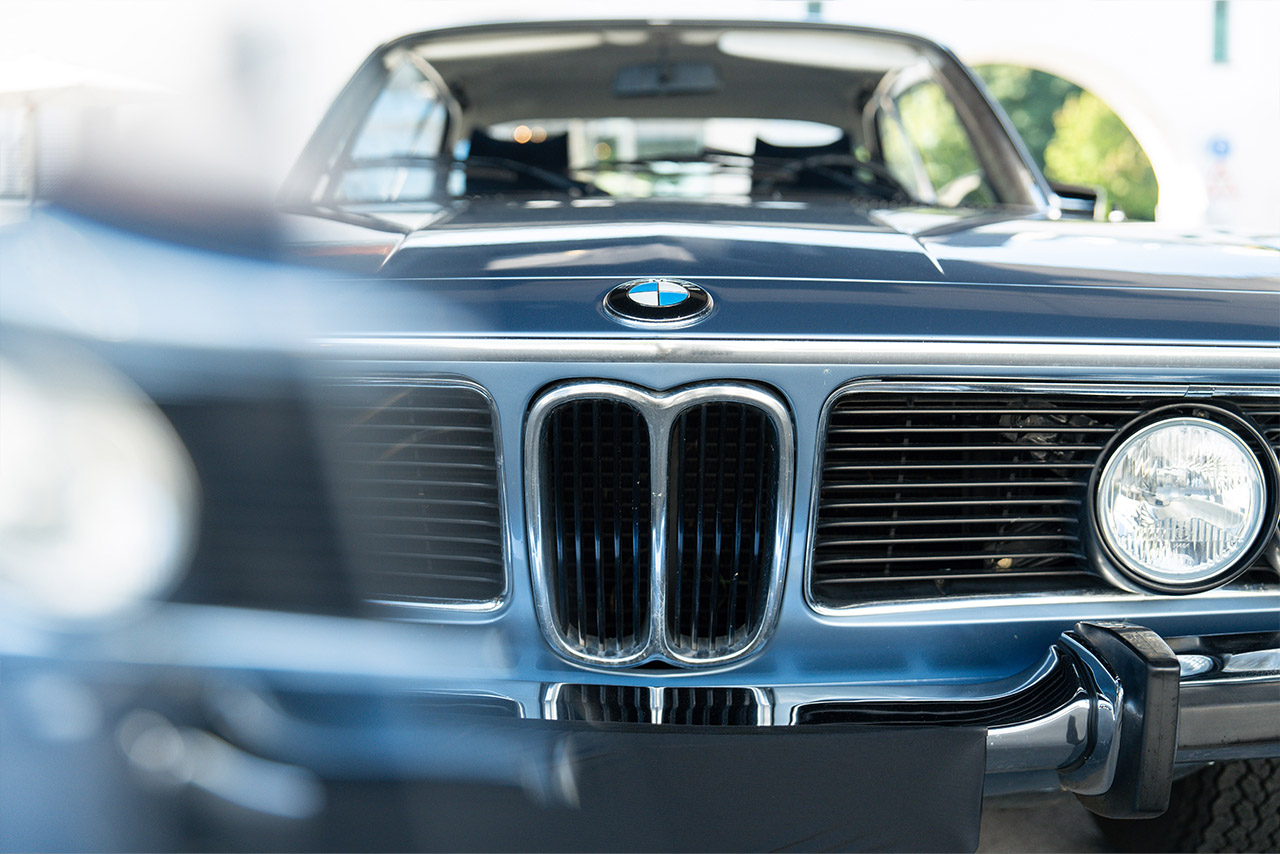
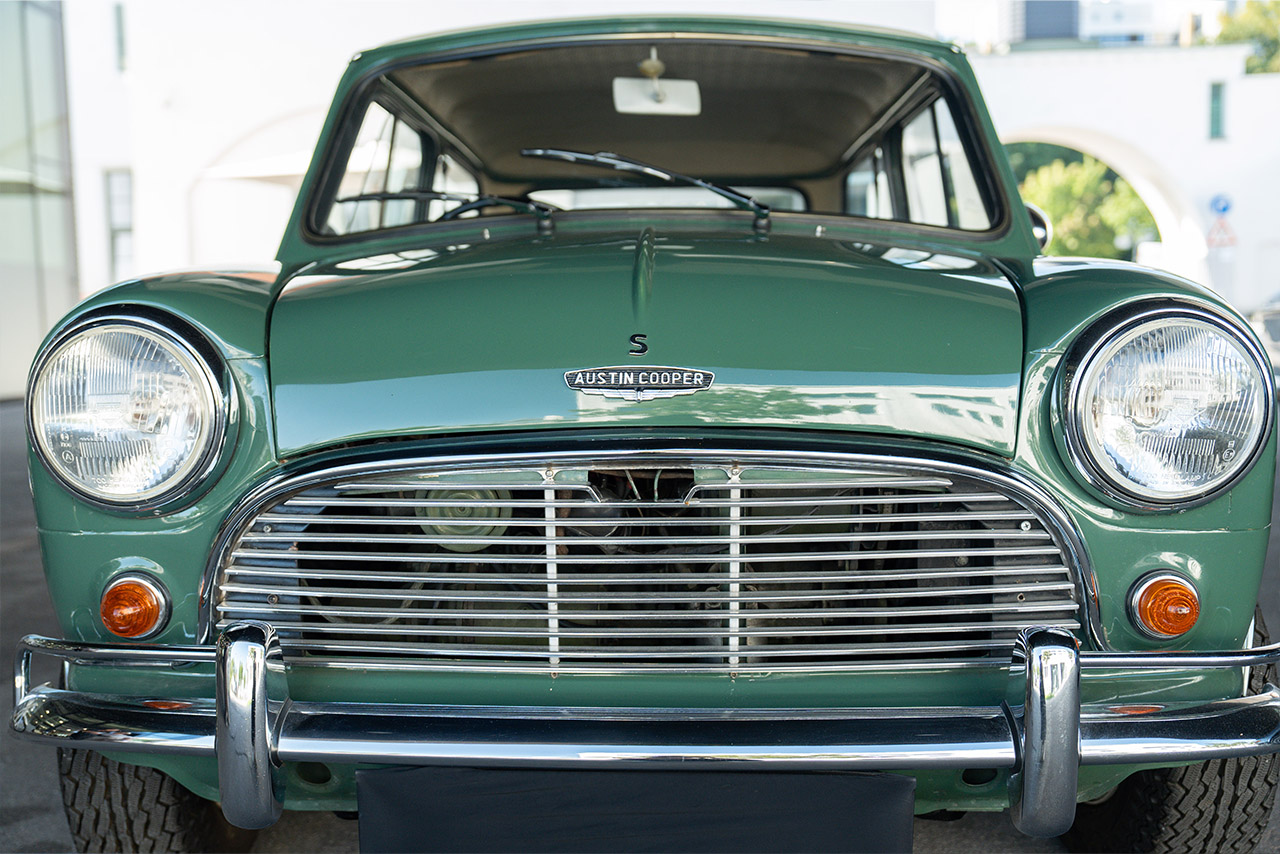
MINI.
On 26th August 1959, the British Motor Corporation revolutionised the automotive industry with the launch of the first MINI. The brilliant engineer Alec Issigonis was the creative mind behind this concept. But it's not just the amount of available space that is impressive: The Classic MINI delights in both everyday driving and racing, with outstanding performance and agile handling.
BMW Motorrad.
BMW Motorrad has been synonymous with innovative and powerful motorcycles since 1923. The characteristic flat-twin boxer engine and unmistakable design have been the hallmarks of the brand for over 100 years. Over the years, the BMW Motorrad model range has expanded from sports and touring bikes to the off-road machines of the GS series. Today, BMW Motorrad offers a wide range of models and engine options for almost every type of riding.
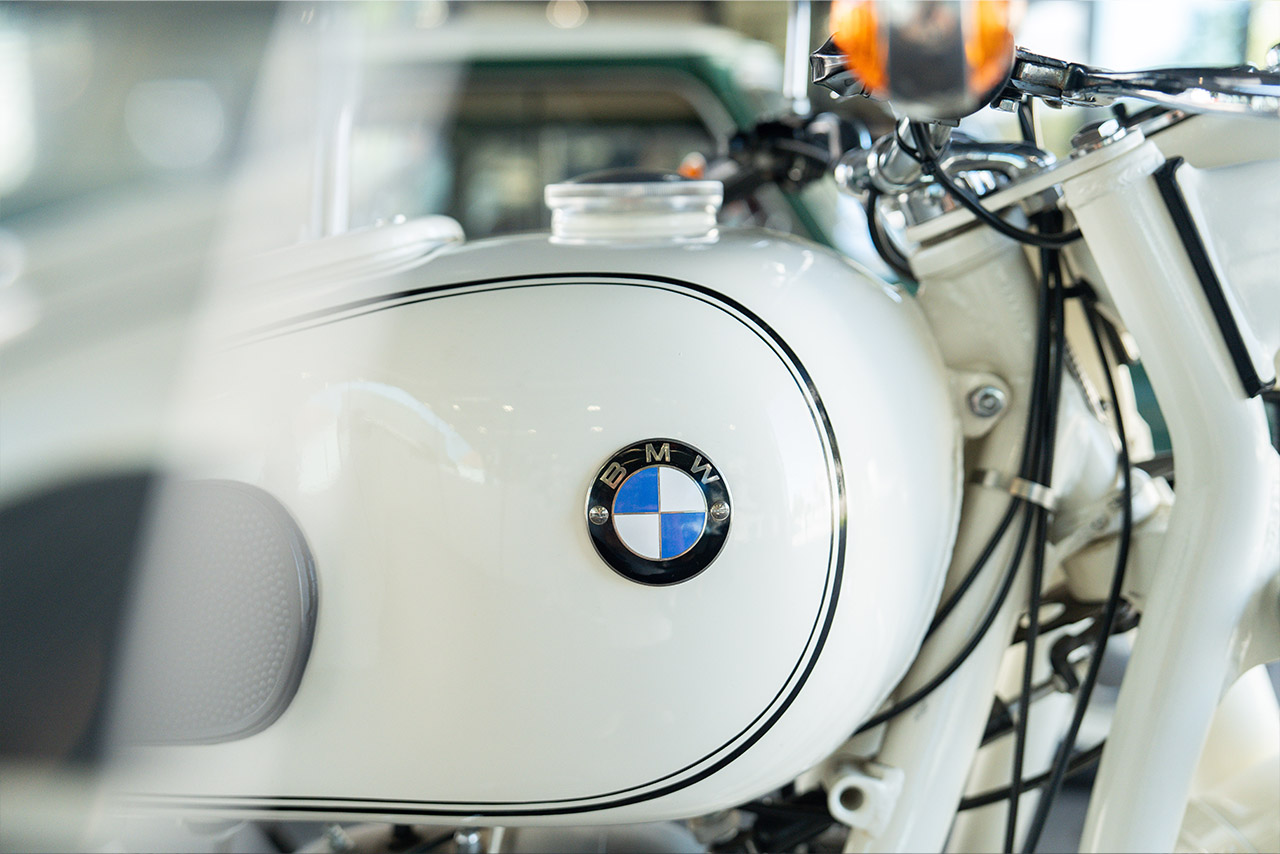
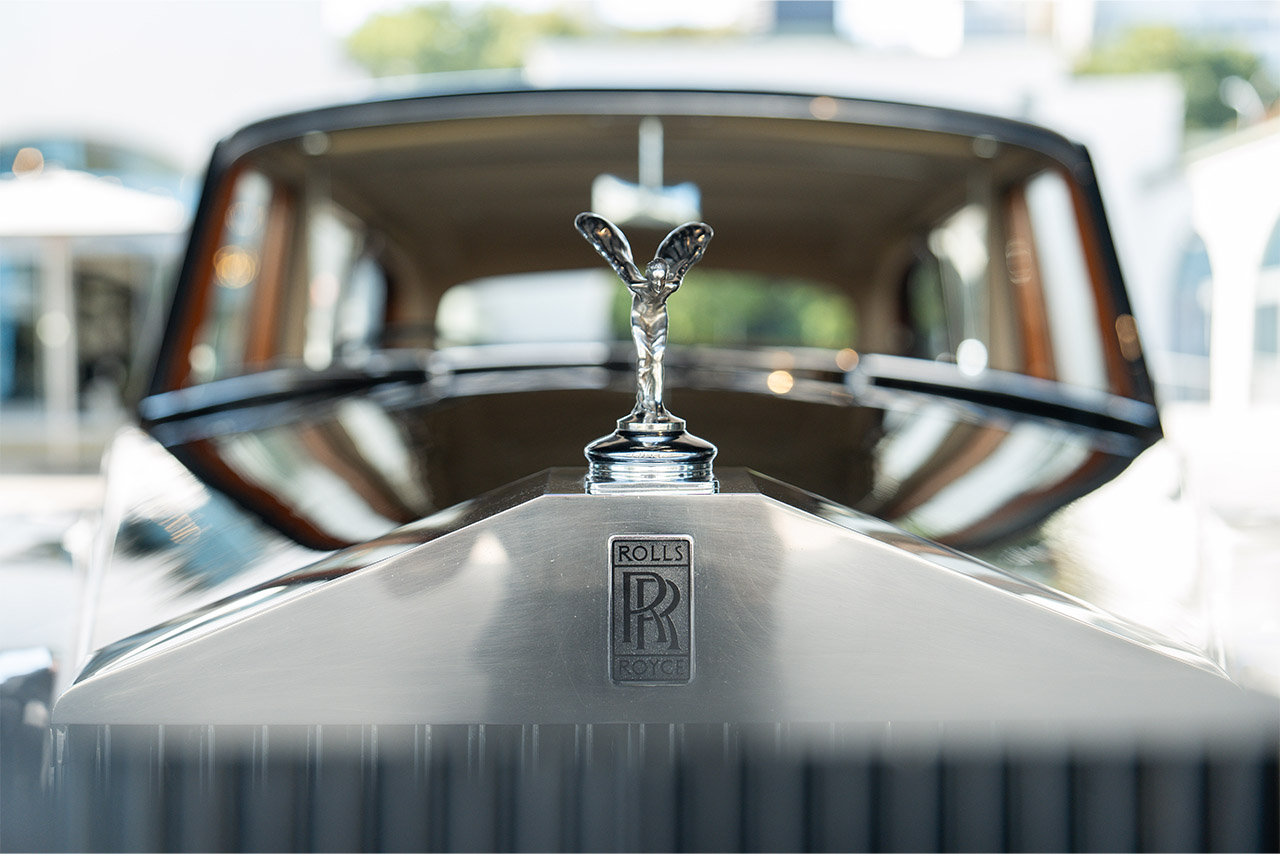
Rolls-Royce.
In July 1998, the BMW Group secured the brand and name rights for Rolls-Royce automobiles. The British company remained with Volkswagen until the end of 2002, when the BMW Group assumed full responsibility for Rolls-Royce Automobiles. As a result, a new plant and headquarters were built at Goodwood in the south of England. Rolls-Royce has always stood for high quality and luxury class – and still does.
Growing through crises.
In spite of all its successes, the history of BMW has not always been an easy one. One particularly drastic event was the sale of the company in 1959, which was prevented at the last minute. But BMW has always emerged stronger from crises and setbacks. The company's rise to become the world's largest premium car manufacturer began in 1961 with the launch of the sporty “Neue Klasse” (New Class). BMW was also the only German manufacturer that stuck with motorcycles. The expansion of sales and production in the 1970s laid the foundations for a success story that continues to this day.
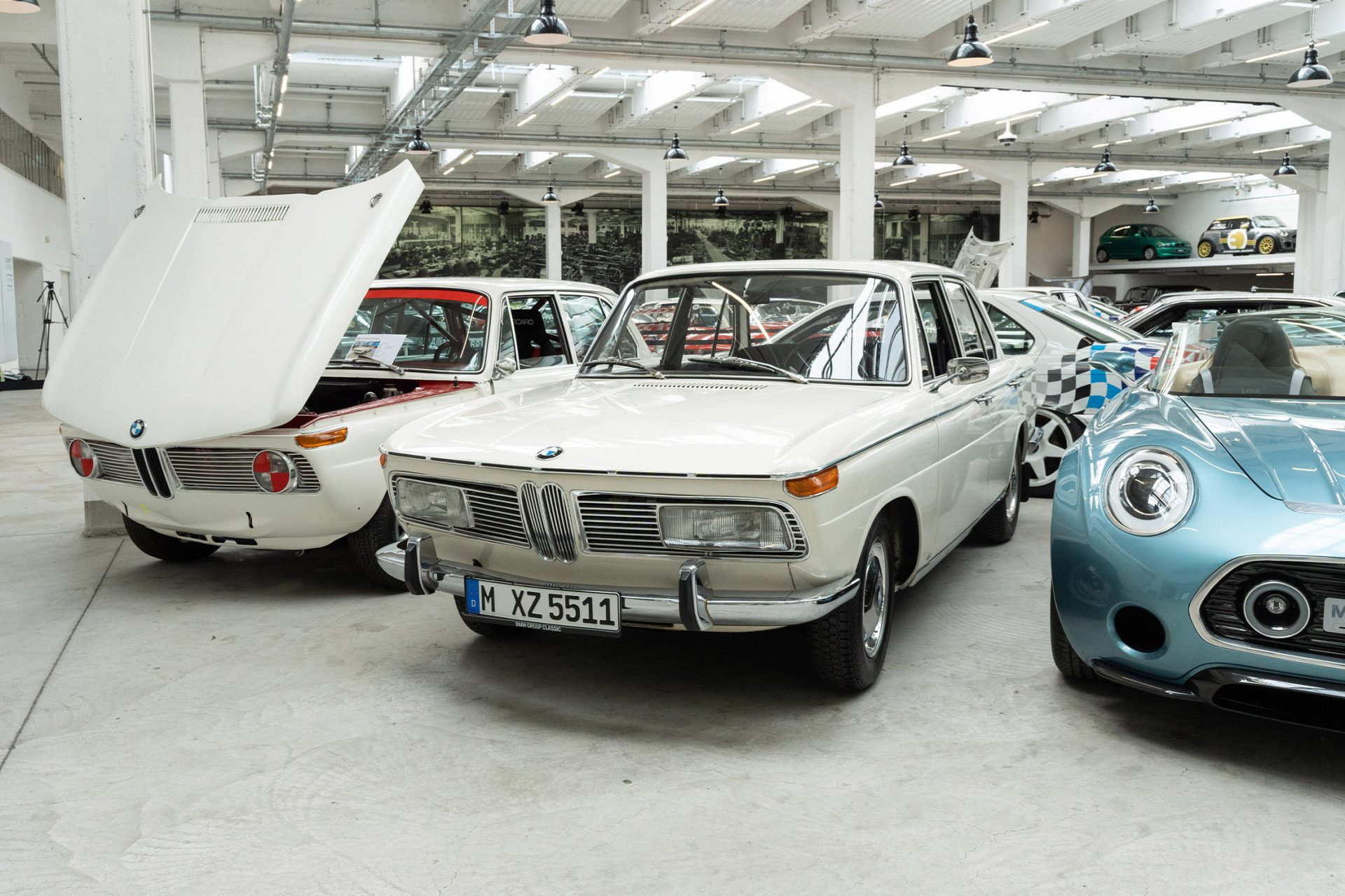
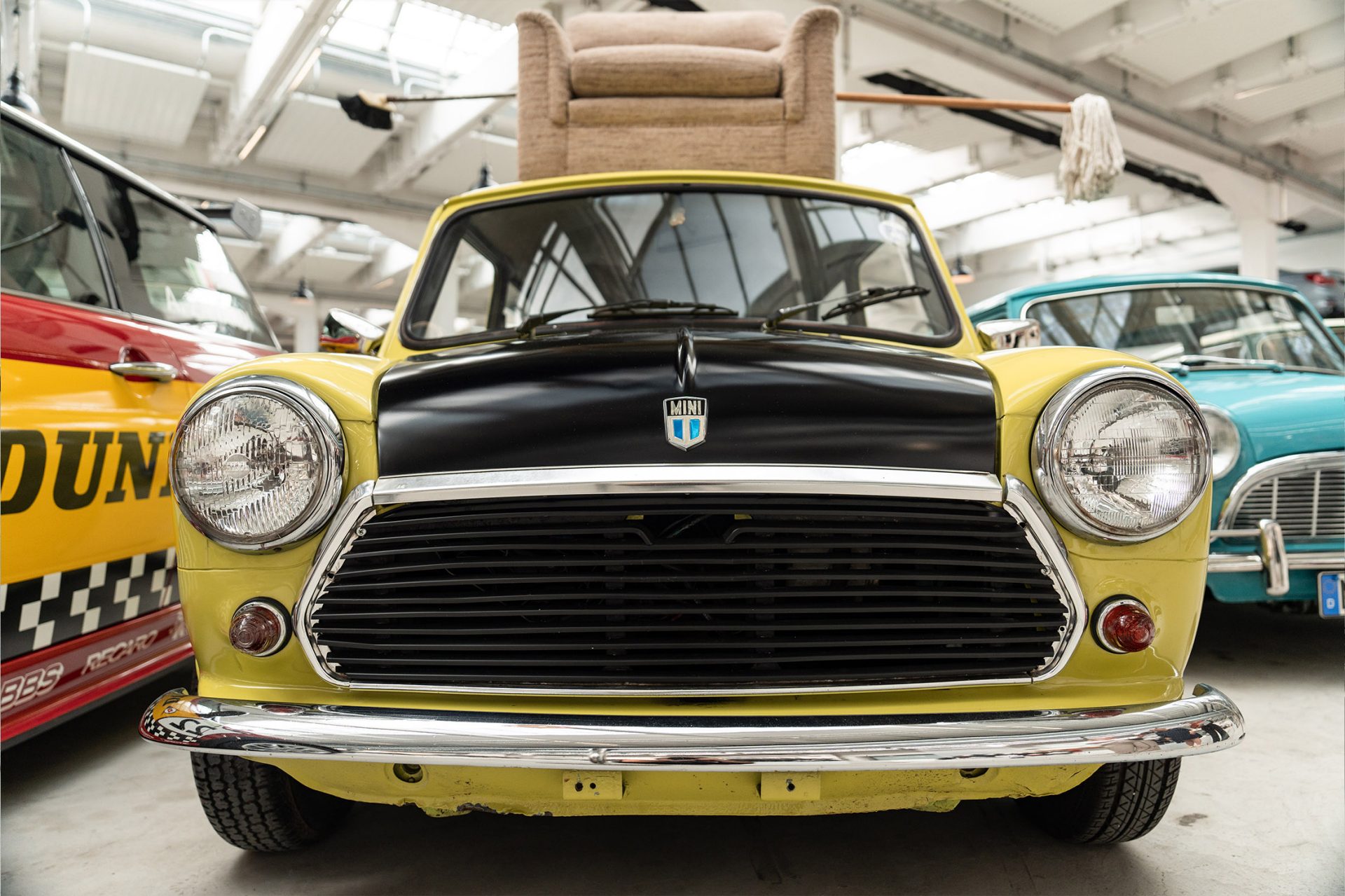
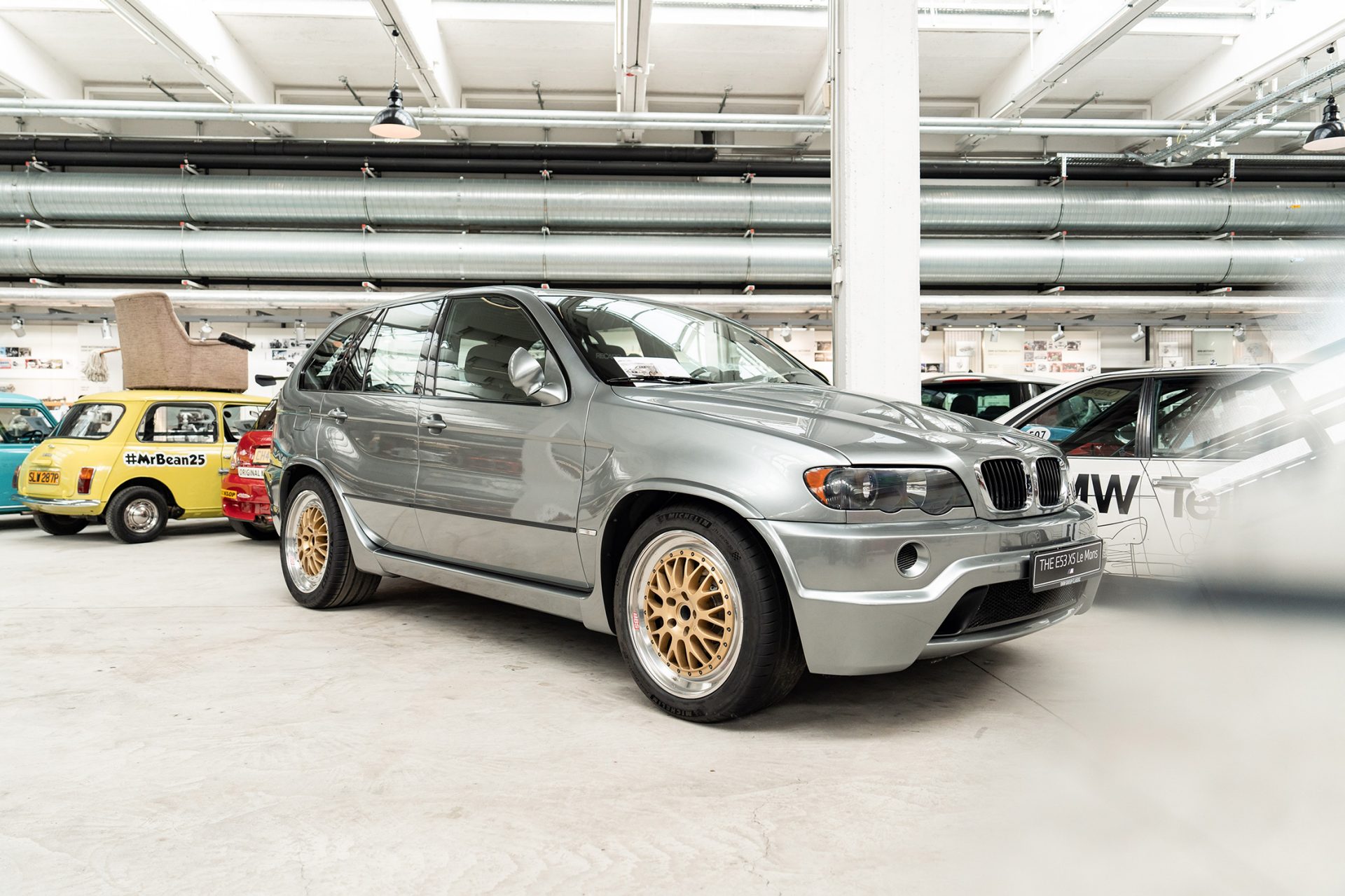
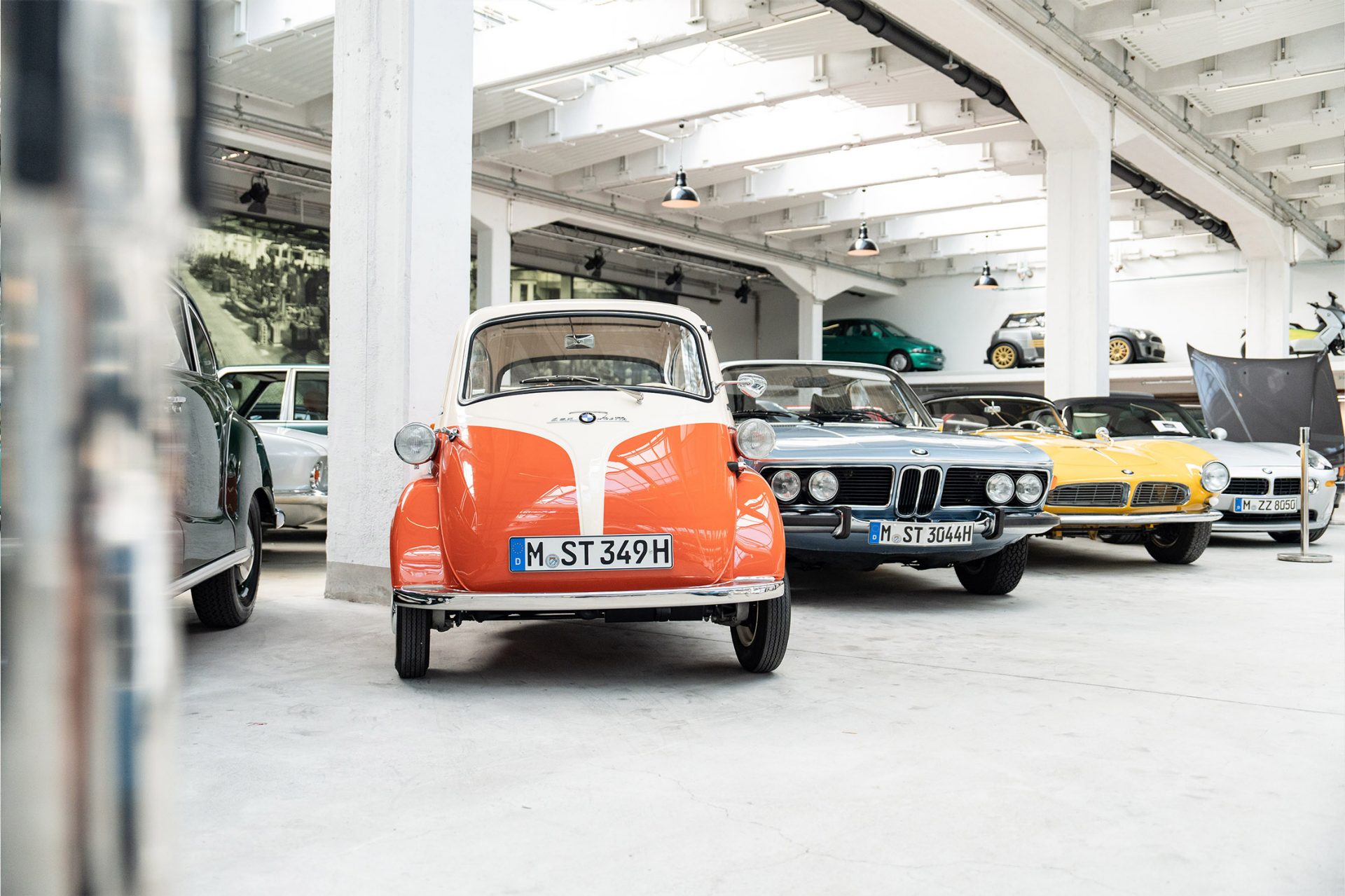
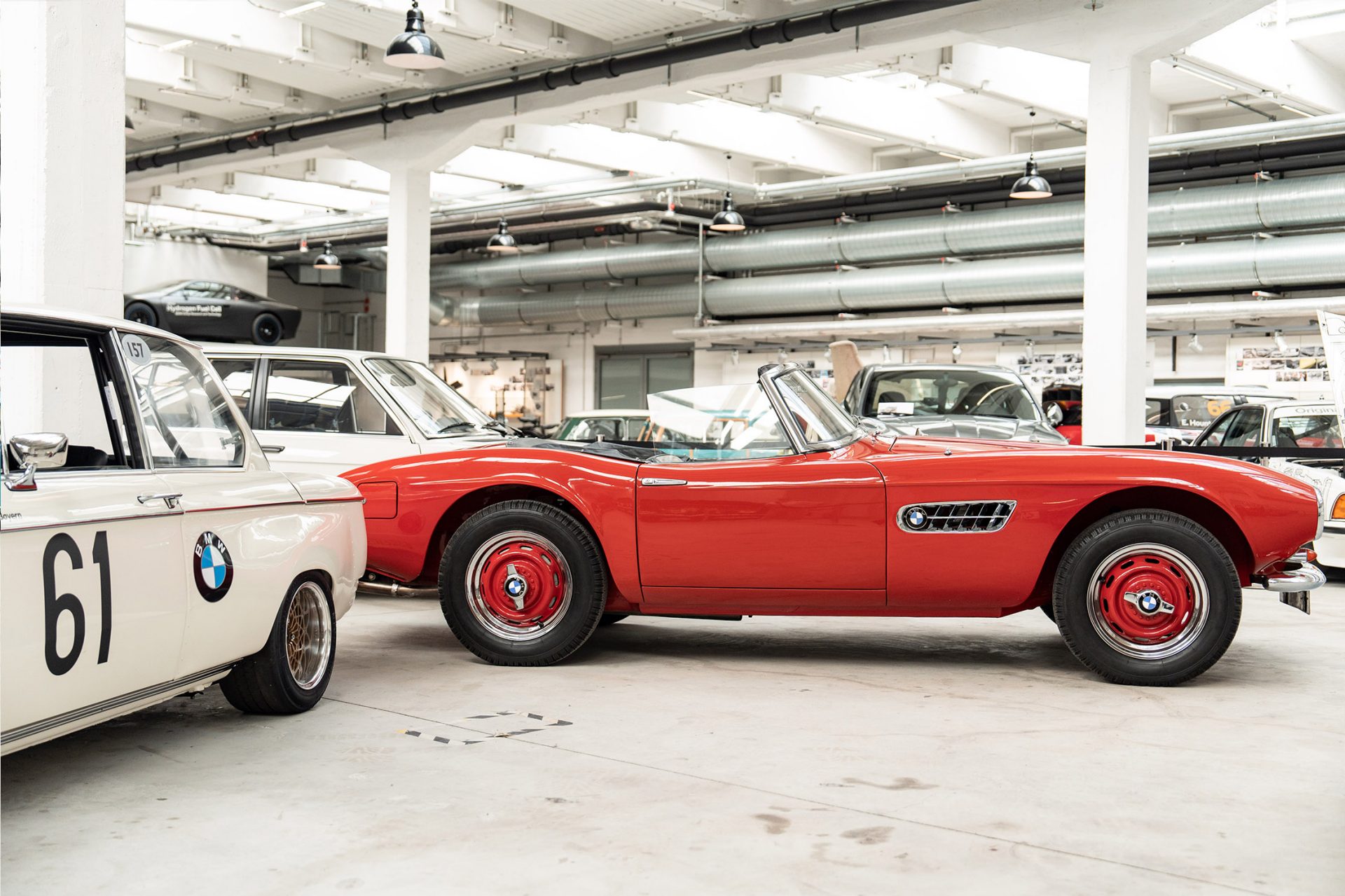
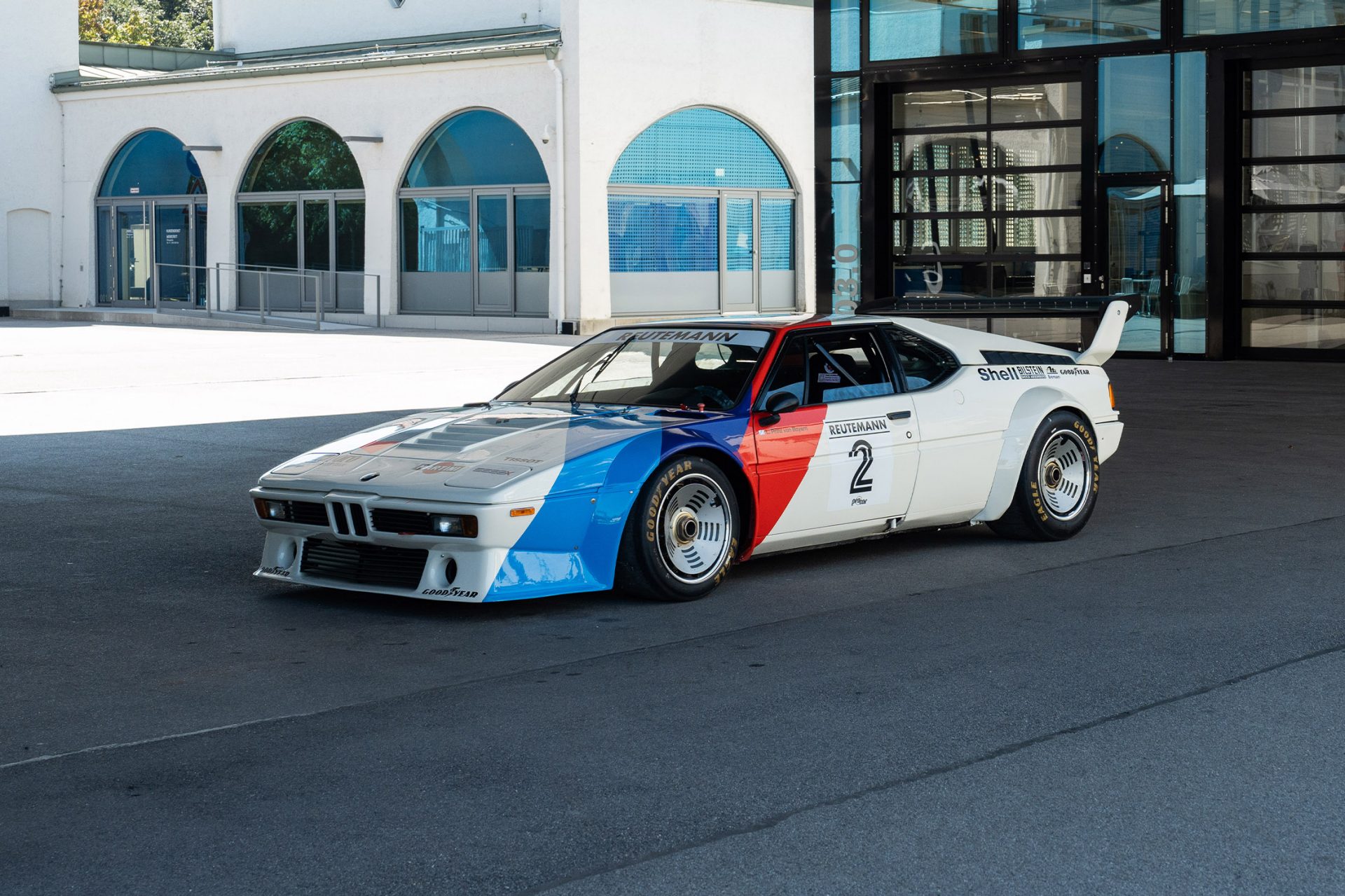
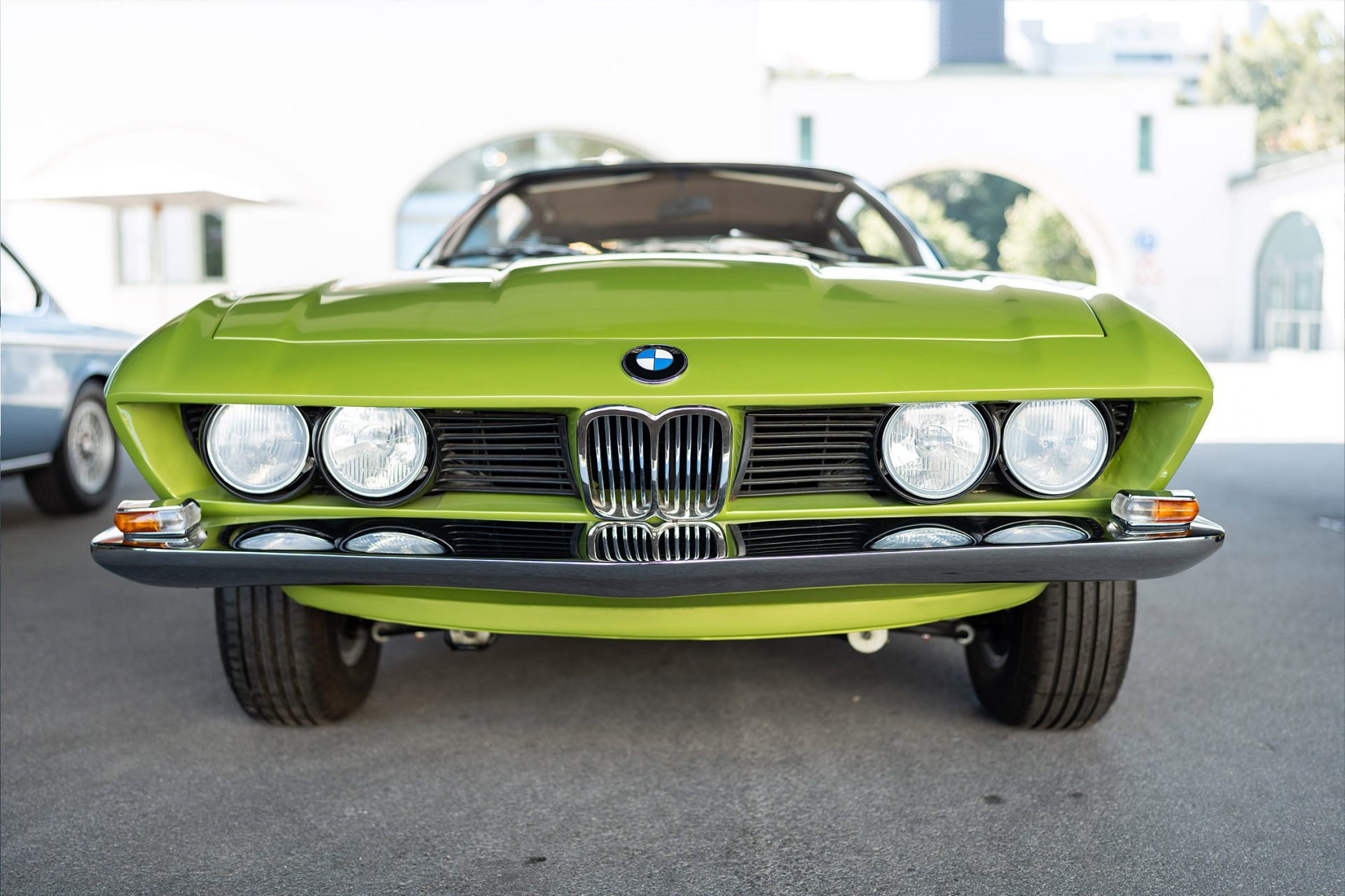
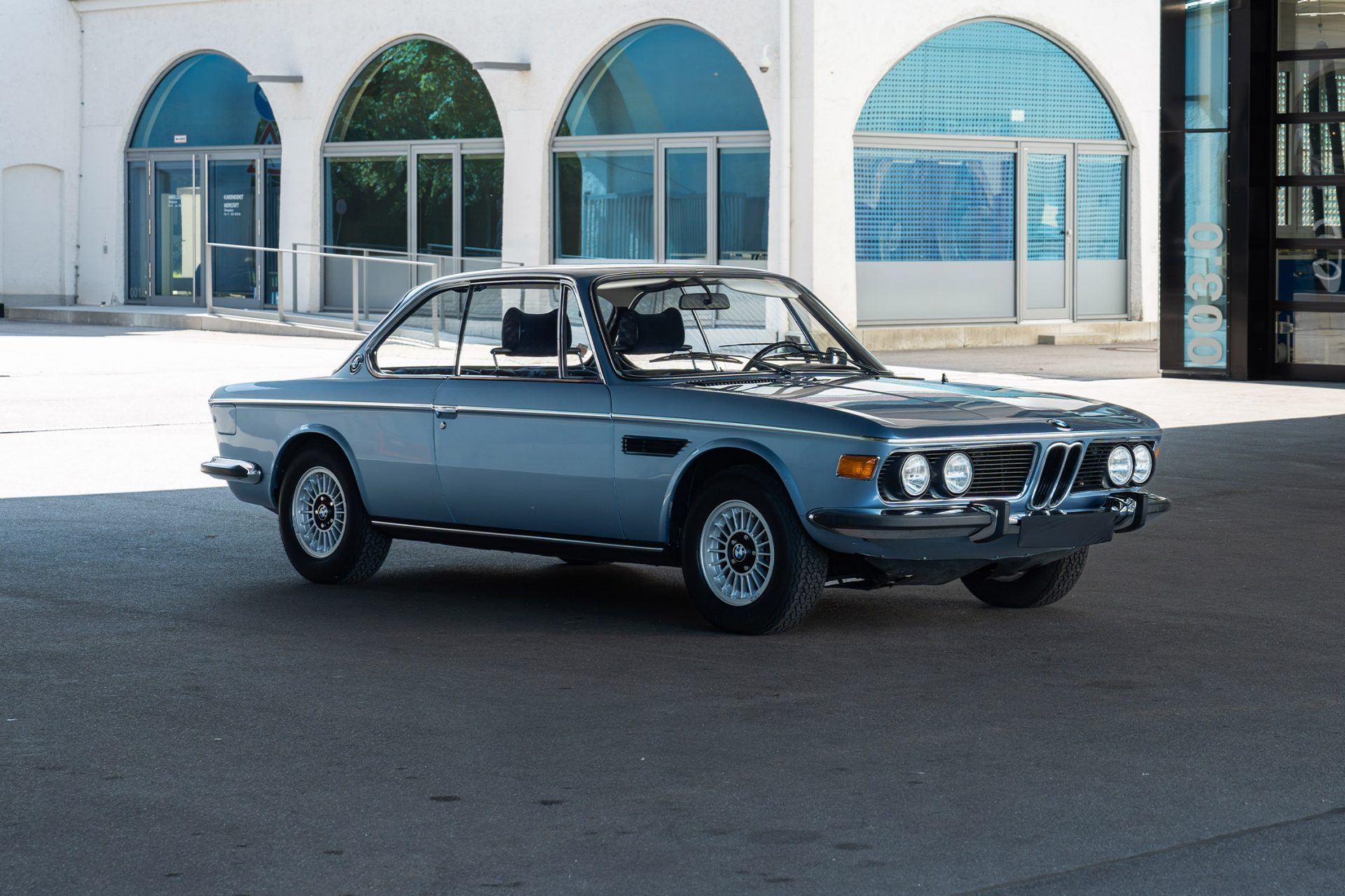
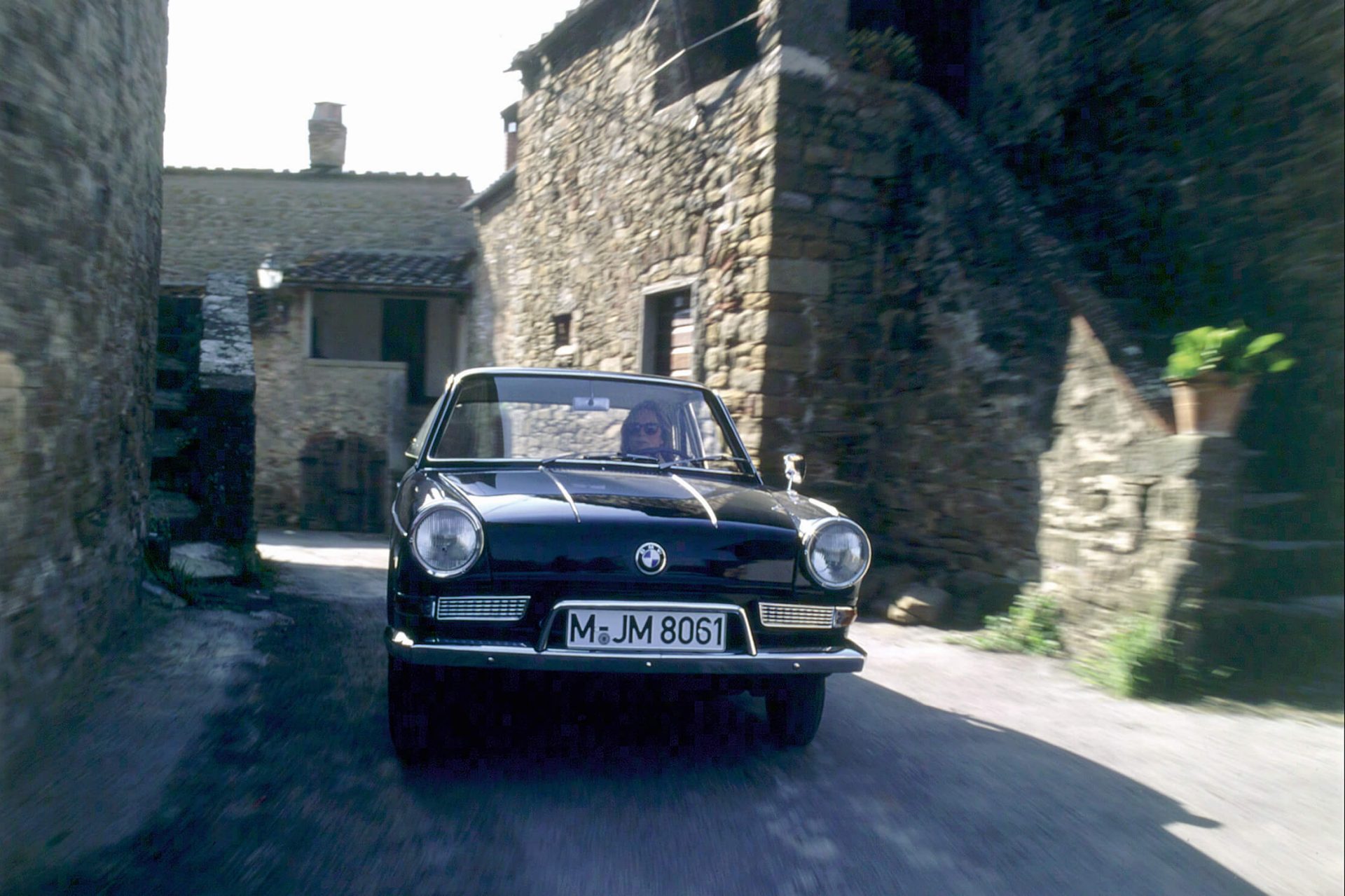
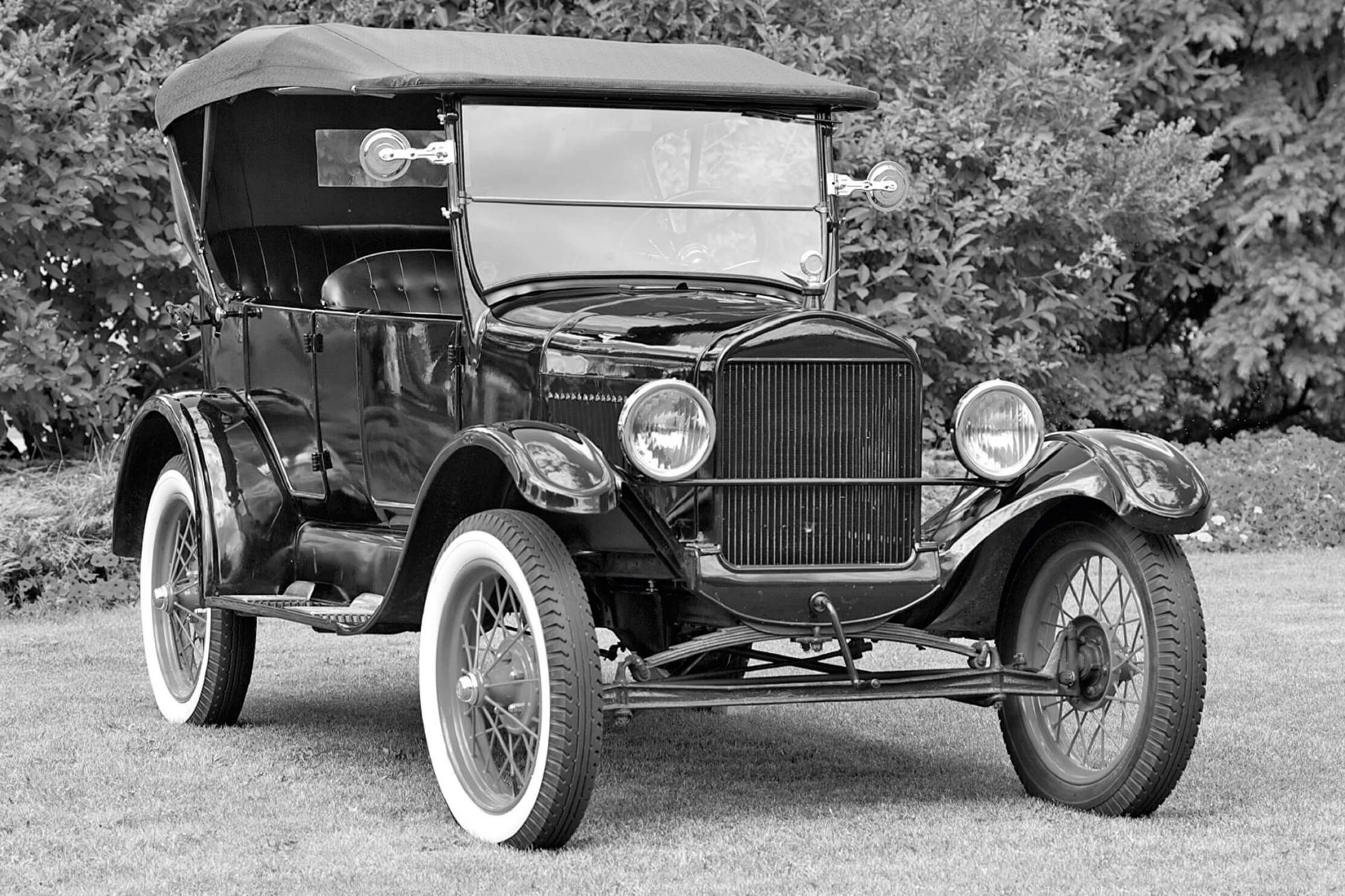
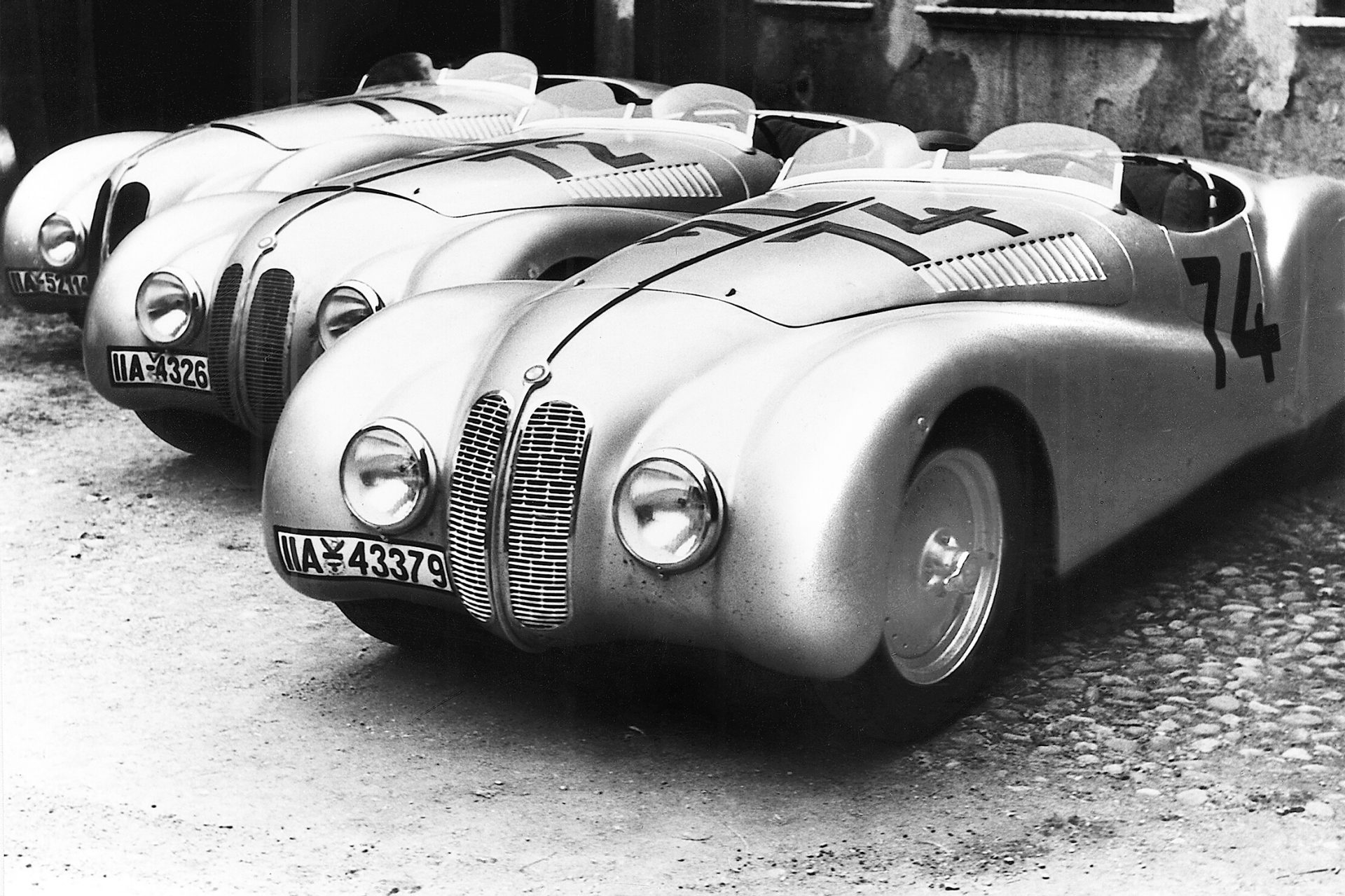
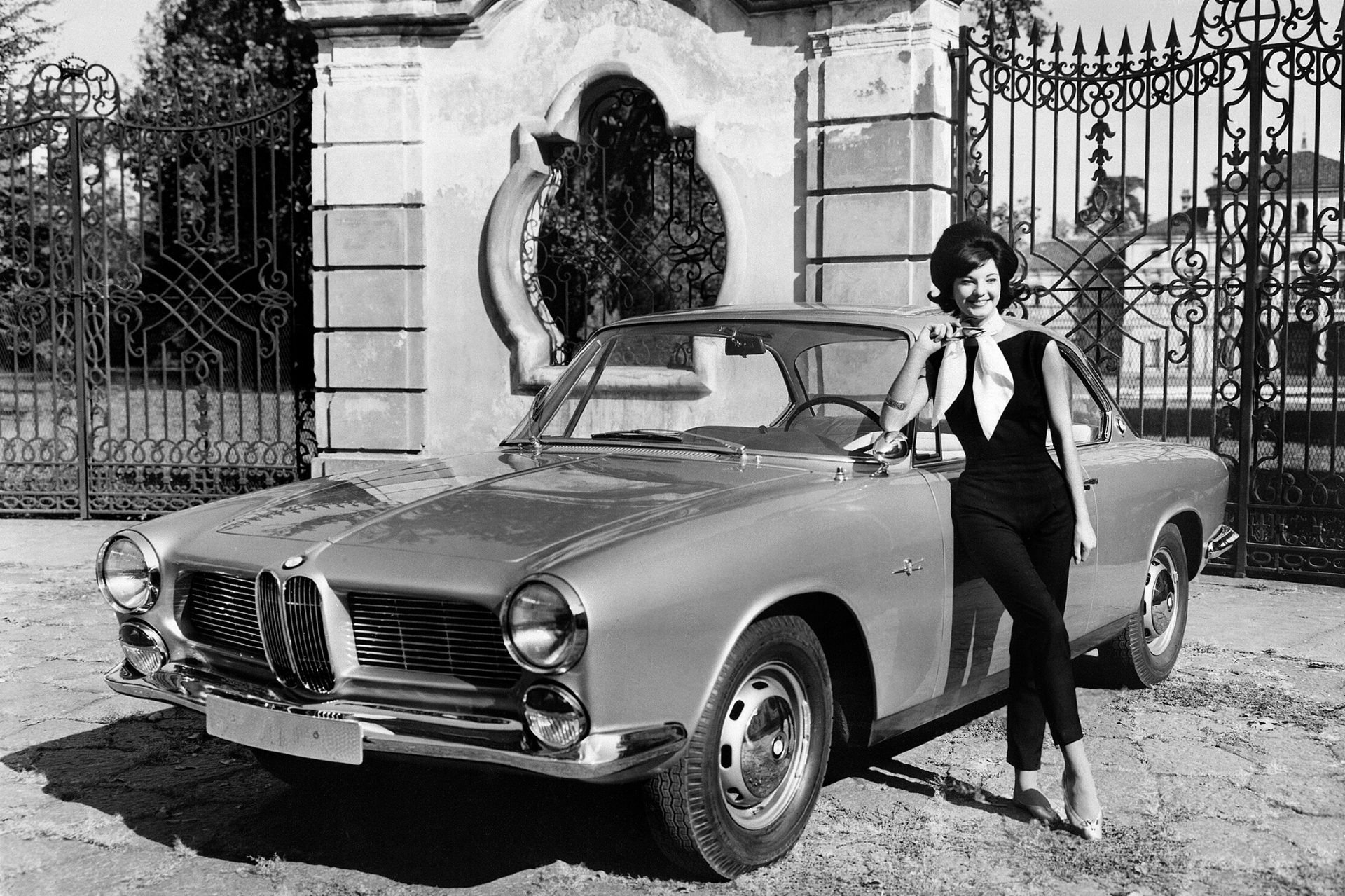

Historic Motorsport.
The dynamism and impressive performance of BMW's legendary racing cars and machines are a source of inspiration to this day. The Brabham BMW BT52 is particularly noteworthy. It was in this car that Nelson Piquet won the Formula One World Championship in 1983. BMW Group Classic revives the golden age of BMW motorsport with its racing classics. Selected vehicles are regularly entered in the major events on the classics racing calendar.
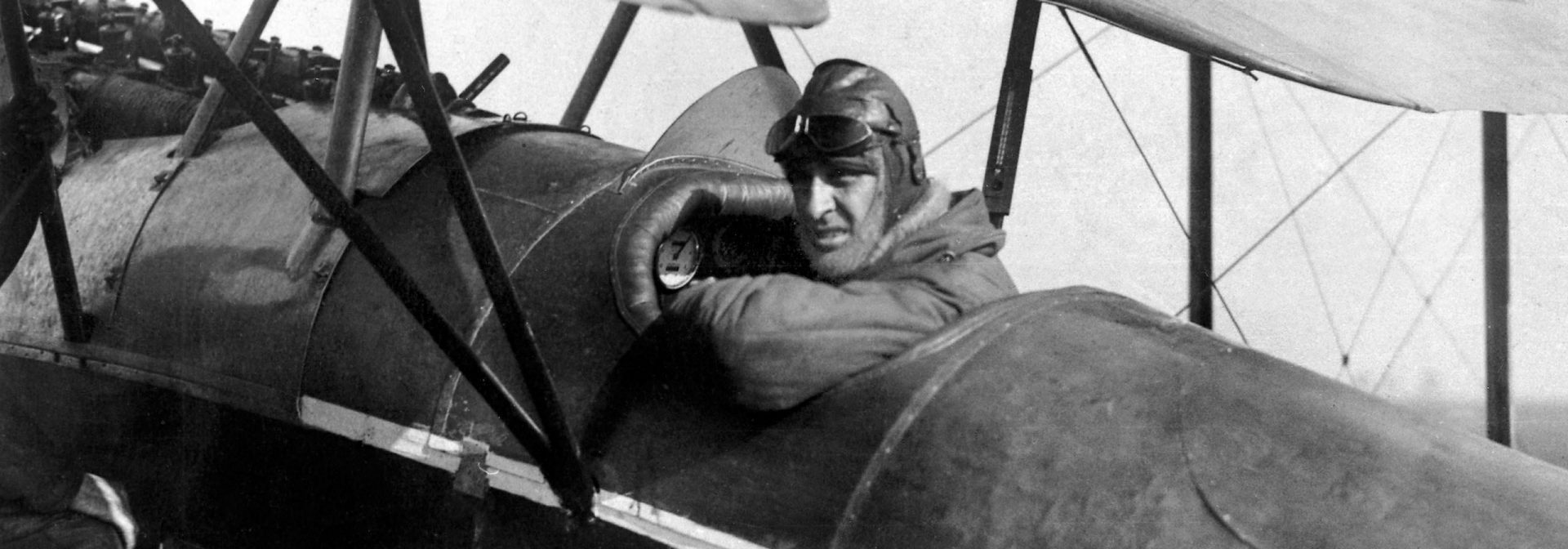
Go higher, go faster, go further.
Go higher, go faster, go further.
In 1919, Franz Zeno Diemer set a new world altitude record with the BMW Motor IV flying machine. The experienced pilot reached an incredible 9,760 metres and secured his place in aviation history. Diemer even managed to confirm this extraordinary record again later.
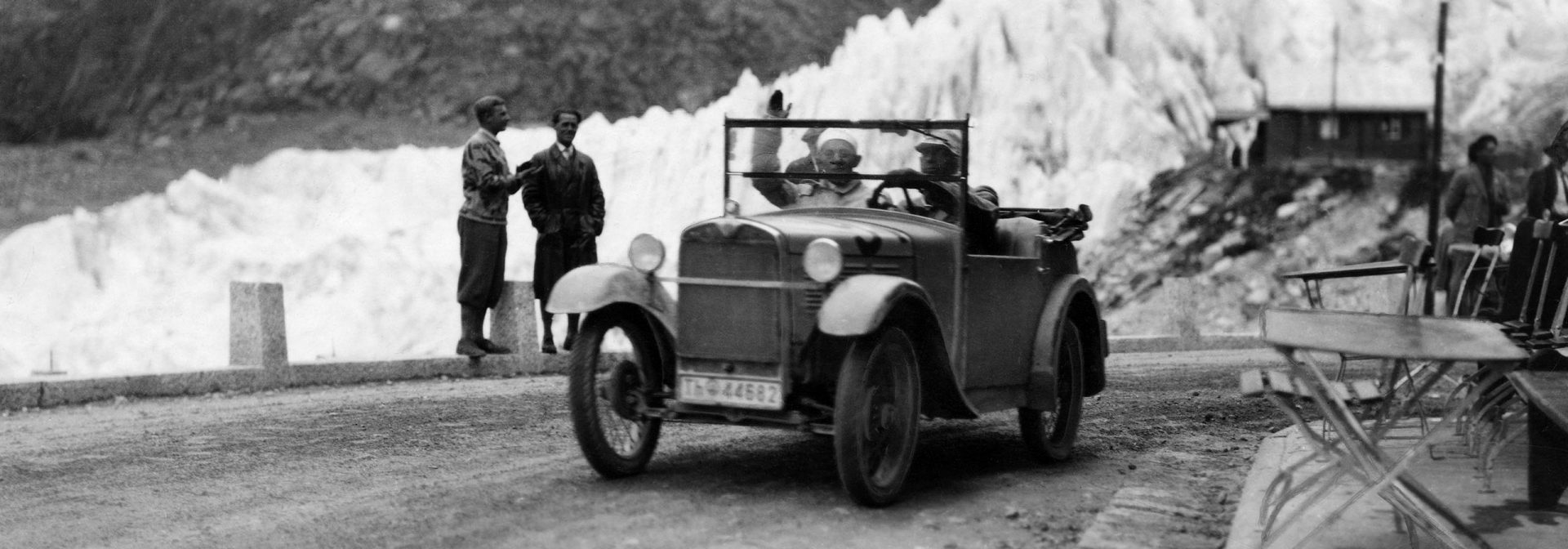
Successes on four wheels.
Successes on four wheels.
Willy Wagner and his copilot set a remarkable mark in the 1929 International Alpine Rally in the BMW 3/15 hp. With this model, he achieved a historic victory and won a motor race against international competition for the first time – a milestone for BMW in motorsport and the basis for future successes.
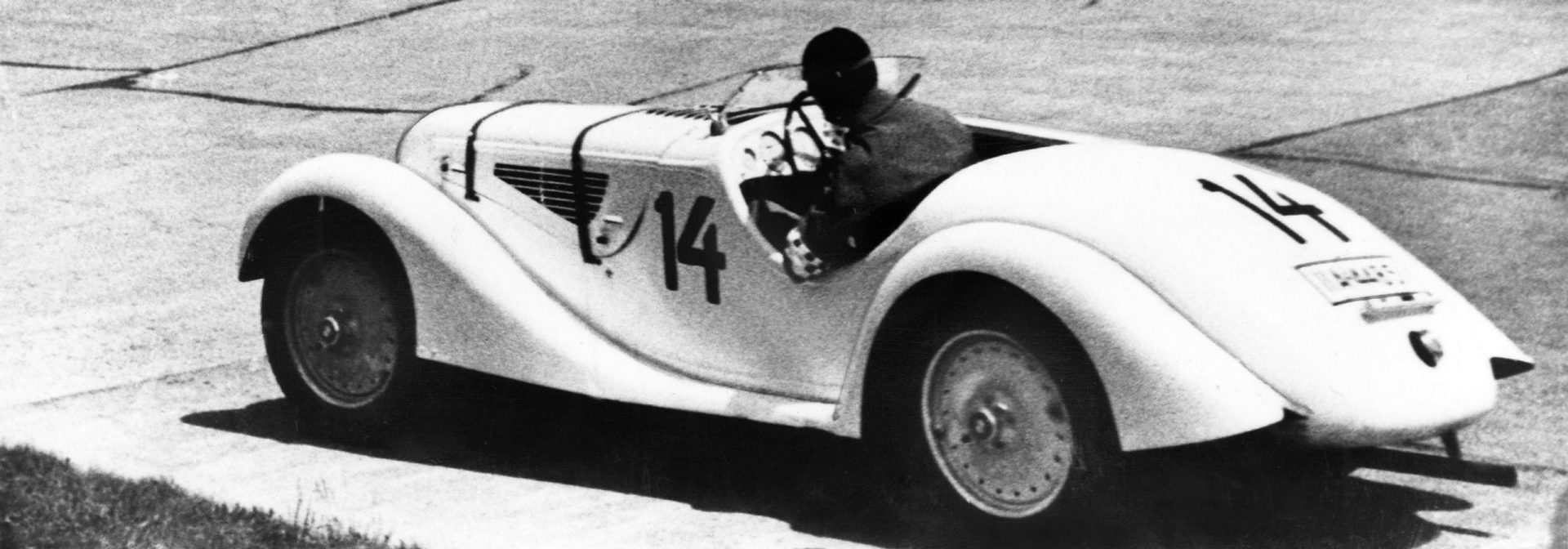
A winner right from the start.
A winner right from the start.
In 1936, Ernst Henne drove the brand-new BMW 328 to its first victory in the sports car class at the Nürburgring. This impressive race marked the beginning of a remarkable success story for the BMW 328, which not only went on to dominate the two-litre class but also became a symbol of engineering prowess and driving pleasure.
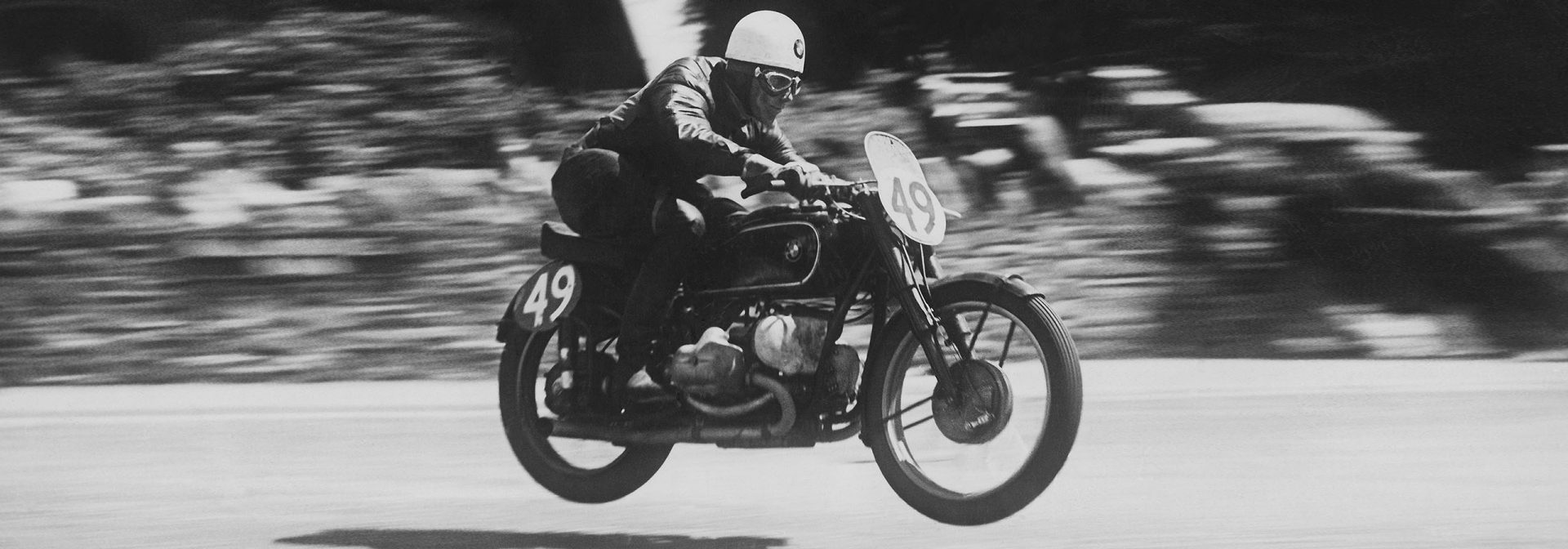
Courage and will.
Courage and will.
Georg "Schorsch" Meier made motorsport history in 1939 when he became the first non-British rider to win the prestigious Senior TT on the Isle of Man on a non-British motorcycle. With his outstanding performance on the BMW supercharged machine, he set an example of international competitiveness and impressed the entire world of motorcycle racing.
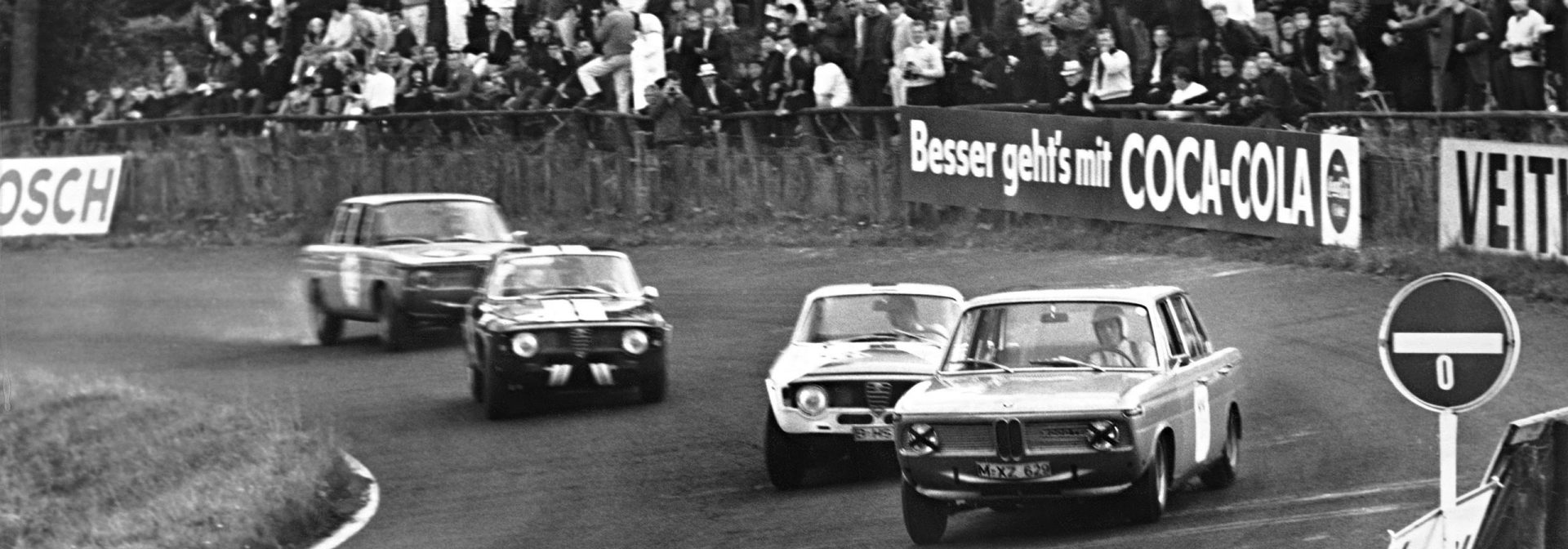
Four doors to victory.
Four doors to victory.
Hubert Hahne made history by winning the European Touring Car Championship. At the wheel of the powerful BMW 2000 TI, he secured the coveted title. This underlined BMW's technical superiority and racing expertise, making him one of the best drivers of his time.
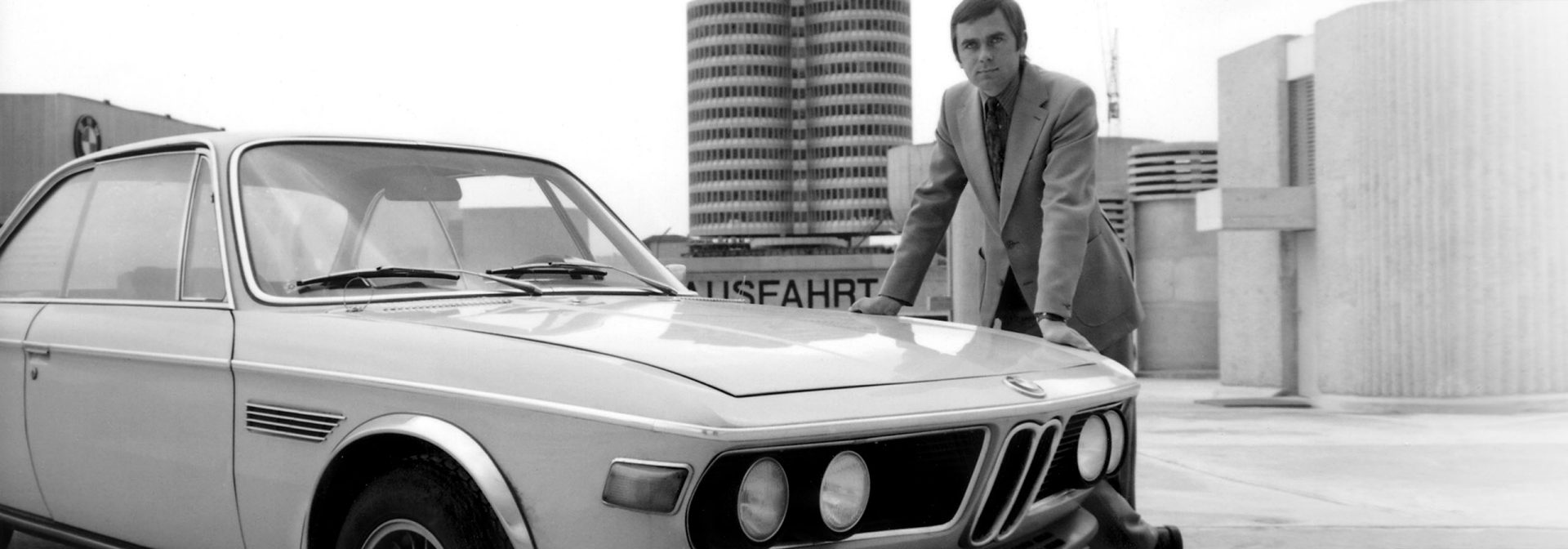
Mythical M.
Mythical M.
With the establishment of BMW Motorsport GmbH, the company concentrated its extensive motorsport activities and resources under one roof. The first Managing Director was Jochen Neerpasch, whose innovative ideas and great professionalism led to impressive successes in various racing series.

Paris-Dakar.
Paris-Dakar.
For the first time, a BMW boxer won the legendary Paris-Dakar long-distance rally. Rider Hubert Auriol even repeated his victory in 1983. In the following two years it was Gaston Rahier's turn to win for BMW – the best proof of the off-road qualities of the BMW flat twins.
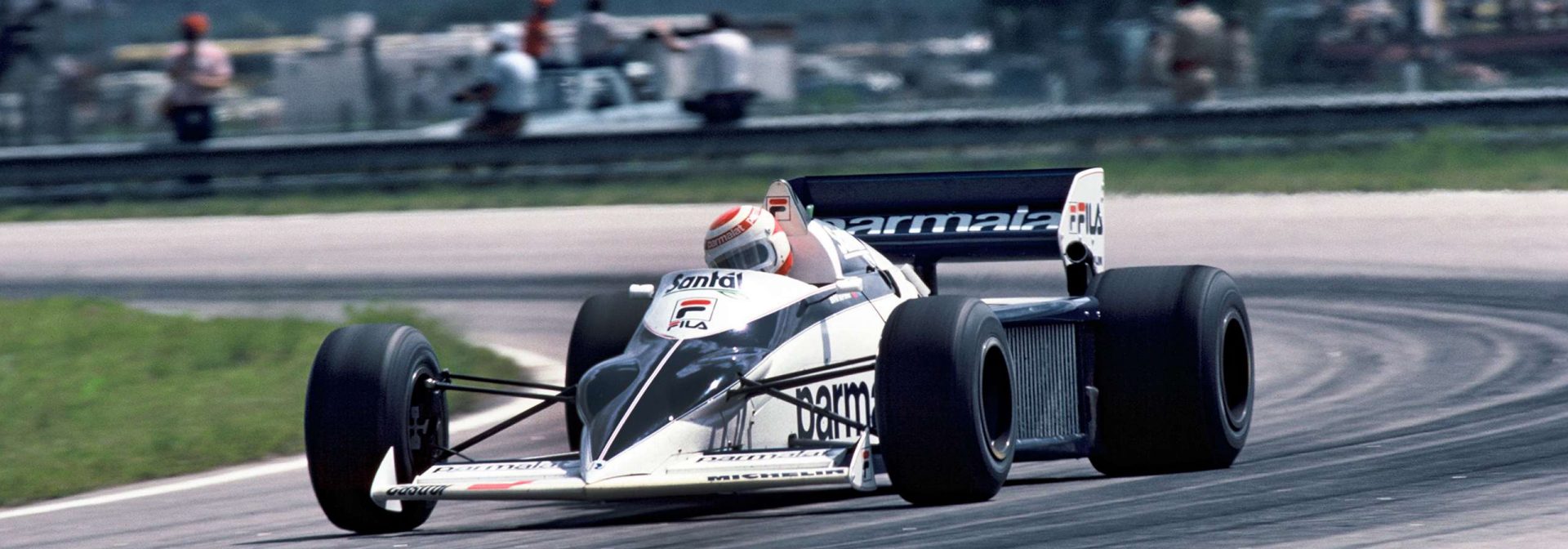
World champion Nelson Piquet.
World champion Nelson Piquet.
In 1983, BMW Motorsport wrote another chapter in motorsport history. Driving the Brabham BMW BT52, which had an impressive output of 1,400 hp and left its rivals in the dust, Nelson Piquet won the world championship and secured BMW's historic success in Formula One.
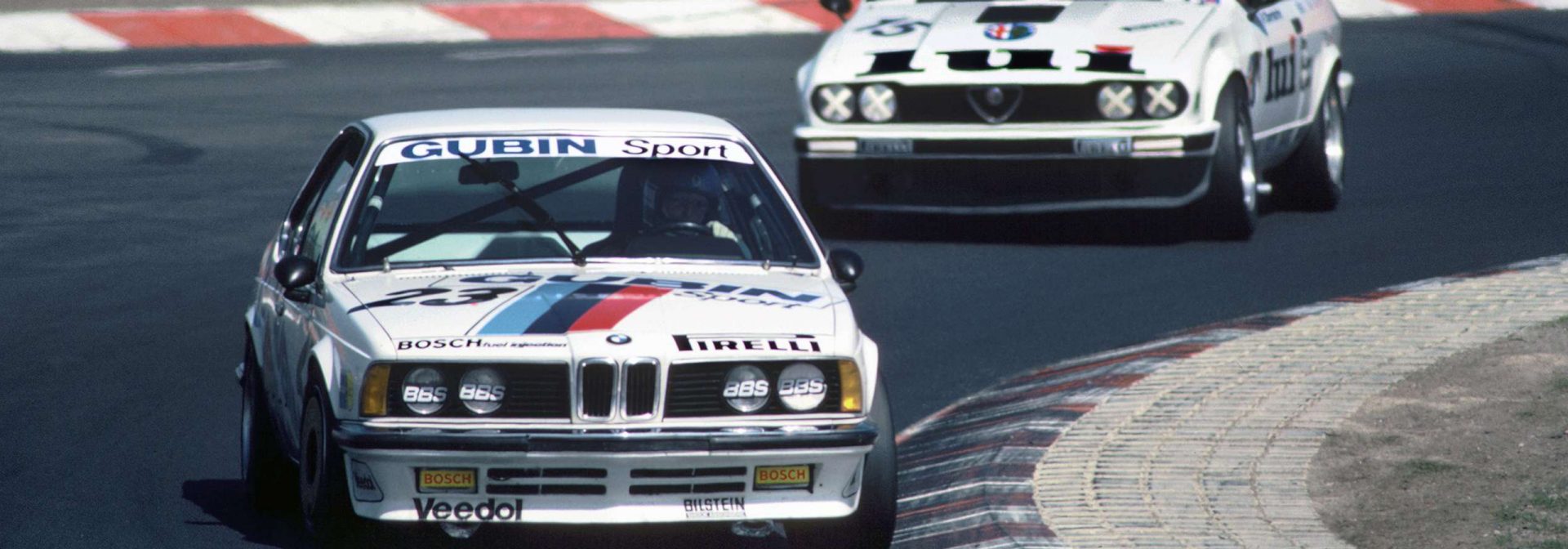
Quadruple victory.
Quadruple victory.
The history of the DTM began on 11 March 1984 with the first race at Zolder. BMW celebrated a quadruple victory, with Harald Grohs crossing the finish line first in the BMW 635 CSi. In the final race at the Nürburgring, however, it was Volker Strycek of Team Gubin who clinched BMW's first title win by finishing fifth.
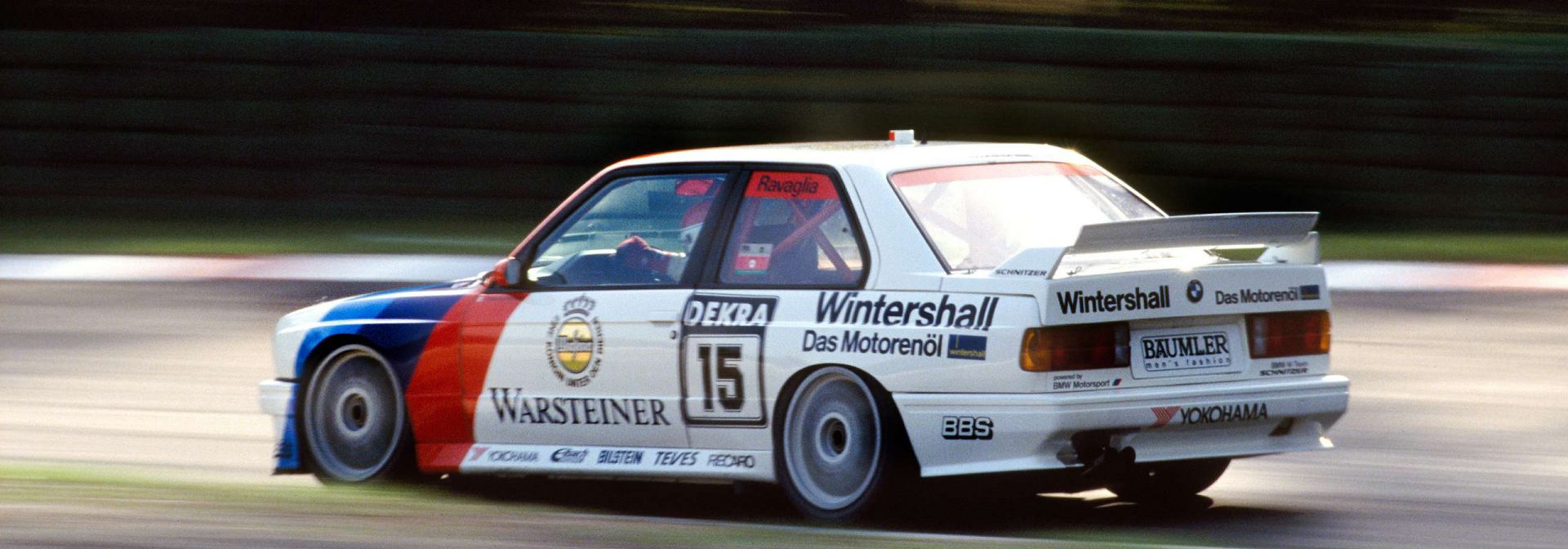
M3. The double victory.
M3. The double victory.
For the time being, this would be BMW's last works appearance in the DTM: Once again, Johnny Cecotto was BMW's best representative, finishing fourth in the drivers' championship. Roberto Ravaglia provided some magical moments at the finale at Hockenheim on 11 October 1992. He celebrated two victories in the BMW M3's final DTM works outing.
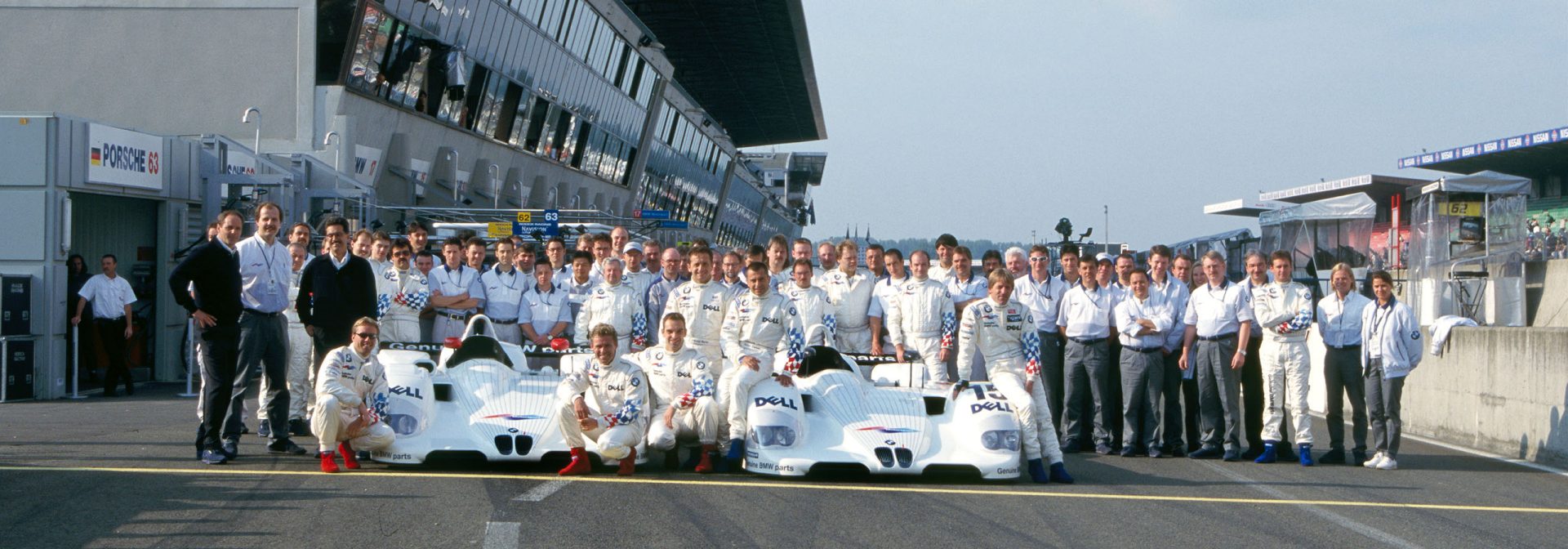
24-Hour Race.
24-Hour Race.
The BMW V12 LMR celebrated a historic victory in the 24 Hours of Le Mans. Drivers Joachim Winkelhock, Pierluigi Martini and Yannick Dalmas overtook the competition to secure the triumph. BMW achieved a major success in motorsport under the leadership of former Formula 1 driver Gerhard Berger as Team Principal.
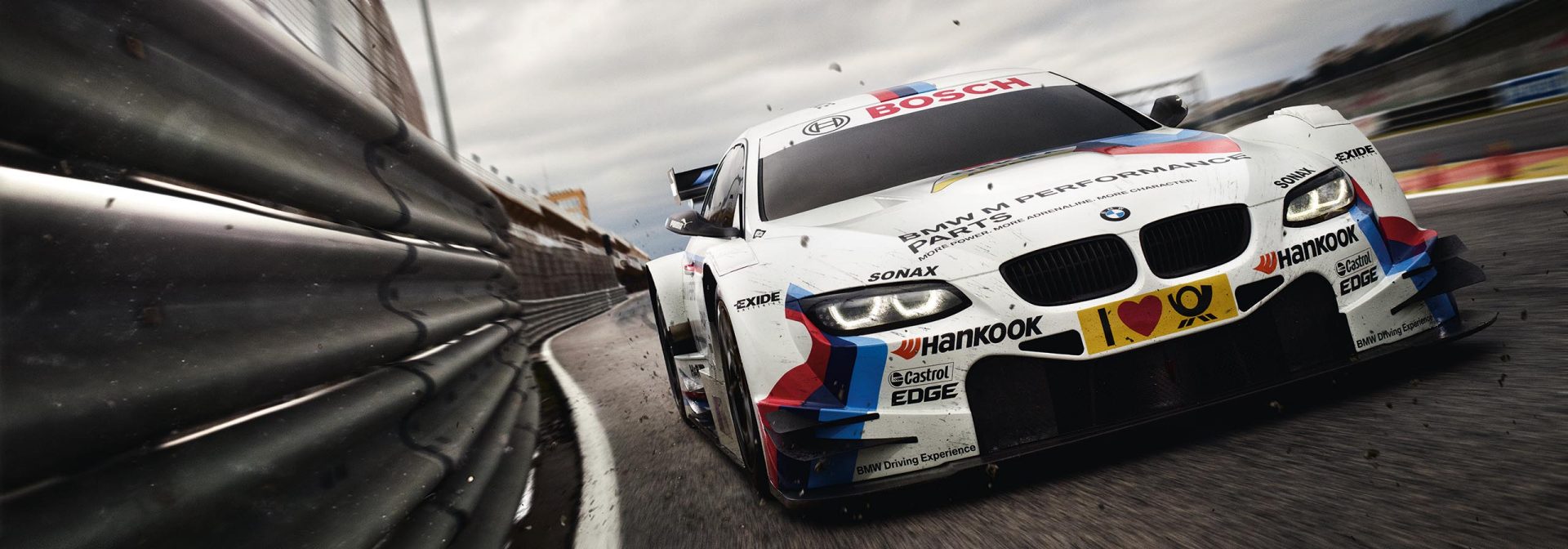
Comeback.
Comeback.
By winning the DTM, BMW M achieved a major comeback in the drivers', teams', and manufacturers' championships. The success was underpinned by the performance of driver Bruno Spengler, who secured the drivers' title. “BMW Team Schnitzer” also played an important role in this triumph. BMW secured the DTM crown in all three important categories.

Starting problems and a seven-fold victory.
Starting problems and a seven-fold victory.
The 2015 season brought innovations such as two races per weekend, which promised double the action. However, the season got off to a bumpy start for BMW M at Hockenheim with just 38 points after two races. The turning point came at Zandvoort, where BMW triumphed with a historic seven-fold race win.
- 1919
- 1929
- 1936
- 1939
- 1966
- 1972
- 1981
- 1983
- 1984
- 1992
- 1999
- 2012
- 2015
Frequently asked questions.
Do you have any questions about the BMW brands?
Here you will find quick and clear answers to frequently asked questions the brands of the BMW Group.
The abbreviation BMW stands for Bayerische Motoren Werke (Bavarian Motor Works). On the one hand, the name refers to the origin of the company: today's Free State of Bavaria. On the other hand, it gives an indication of BMW's original product range: Engines for various applications.
It all began with Karl Rapp and Gustav Otto: Bayerische Flugzeugwerke AG (BFW) was founded in 1916 on the initiative of the state from the flying machine factory founded by Gustav Otto. At the same time, Rapp Motorenwerke became Bayerische Motoren Werke GmbH in 1917.
The MINI brand became part of the BMW Group in 1994. On 26th August 1959, the British Motor Corporation unveiled the first MINI, designed by the brilliant British engineer Alec Issigonis.
In July 1998, BMW acquired a new jewel: After intensive negotiations, the company secured the brand and name rights for Rolls-Royce automobiles from Rolls-Royce plc. The British brand remained wholly owned by Volkswagen until the end of 2002. BMW then assumed responsibility for Rolls-Royce Automobiles, including all rights and obligations.


